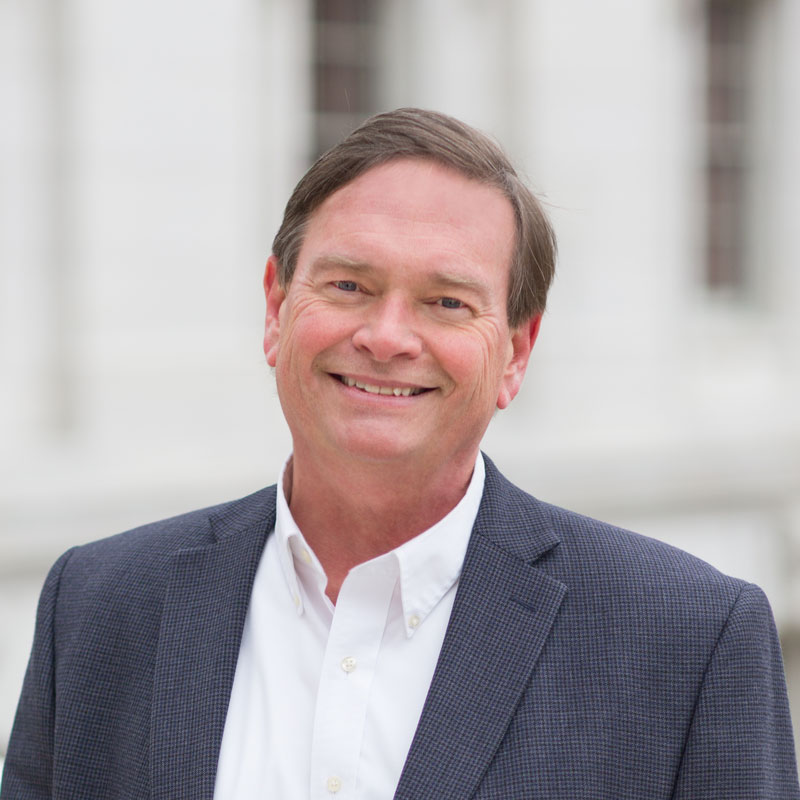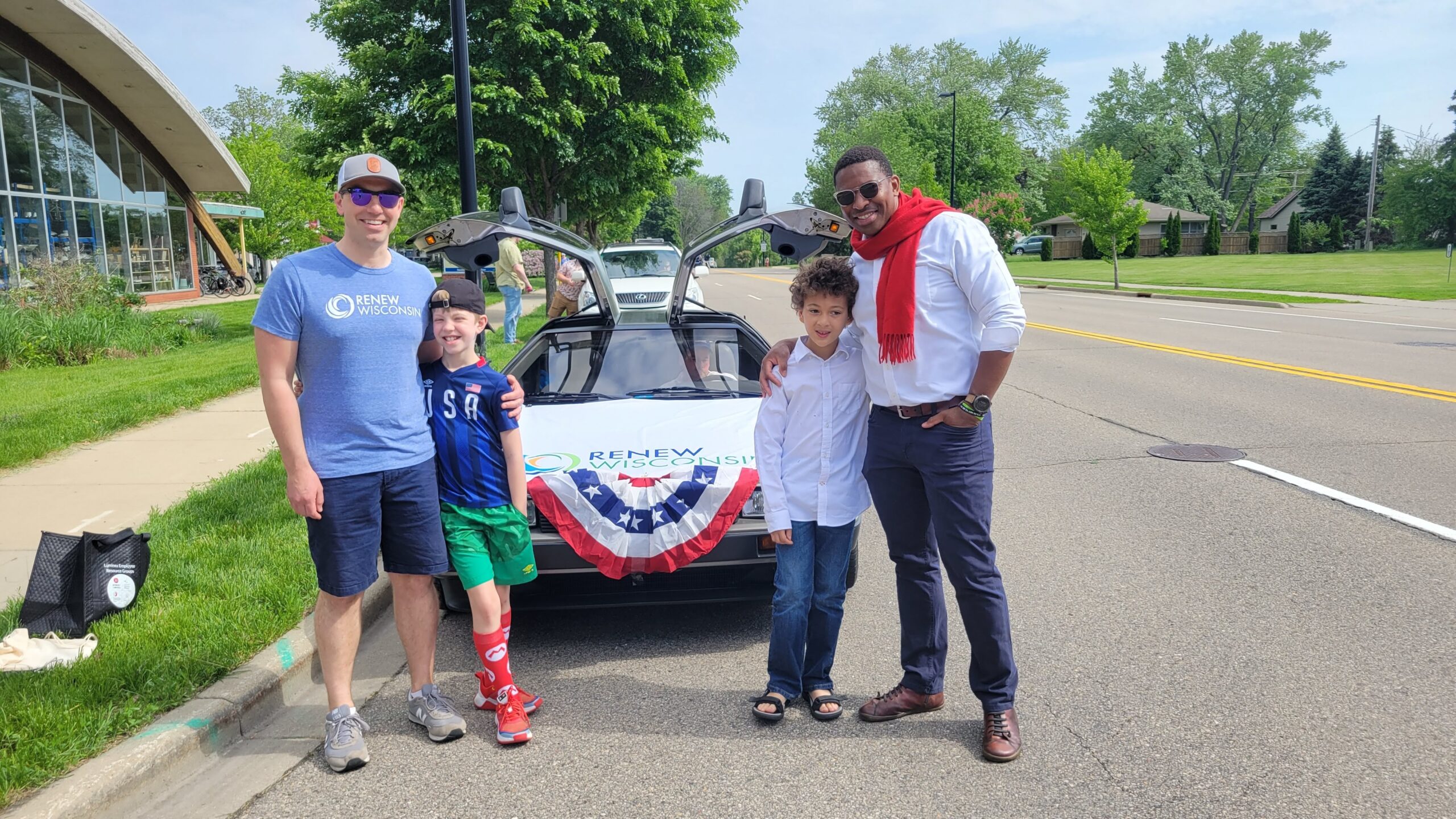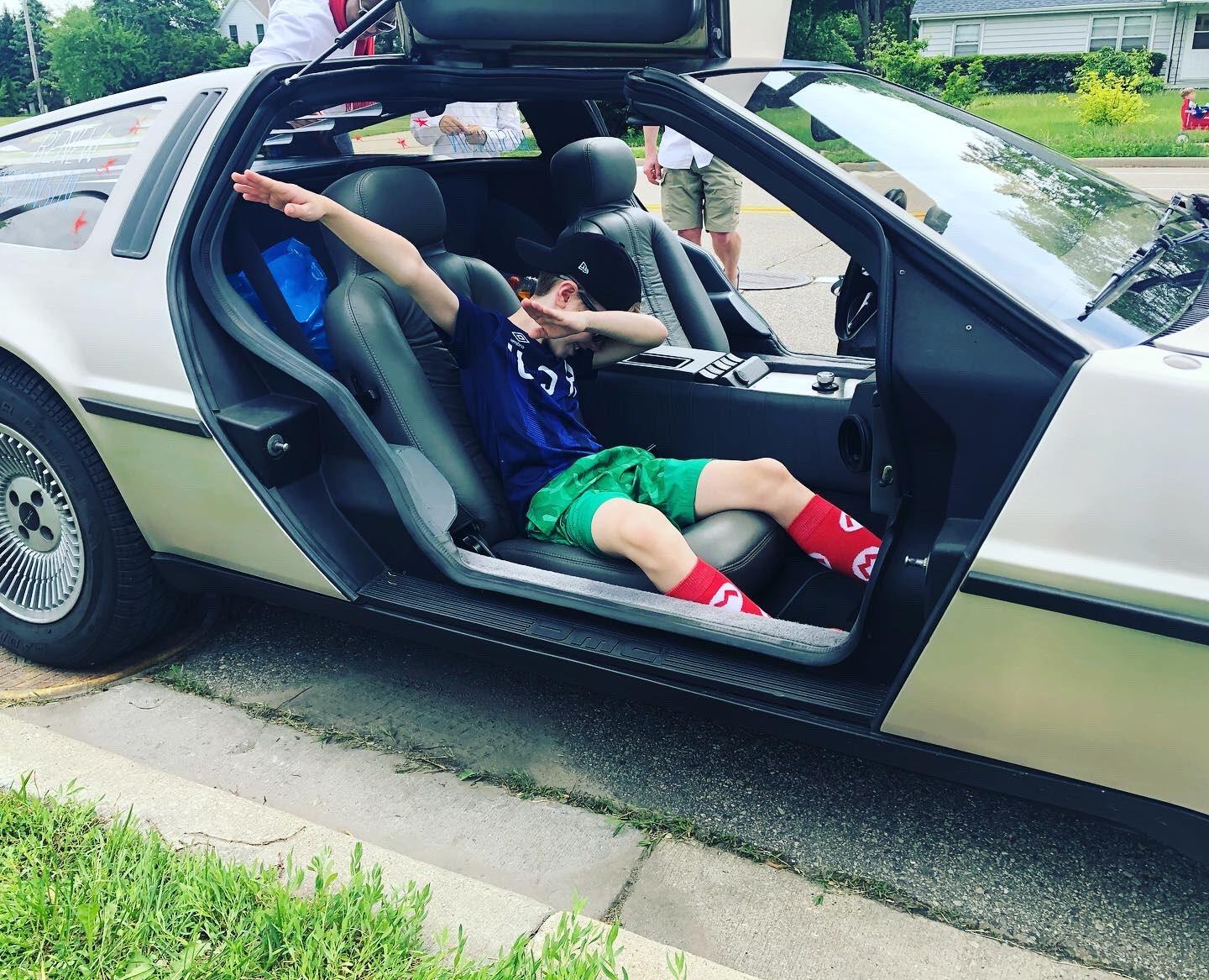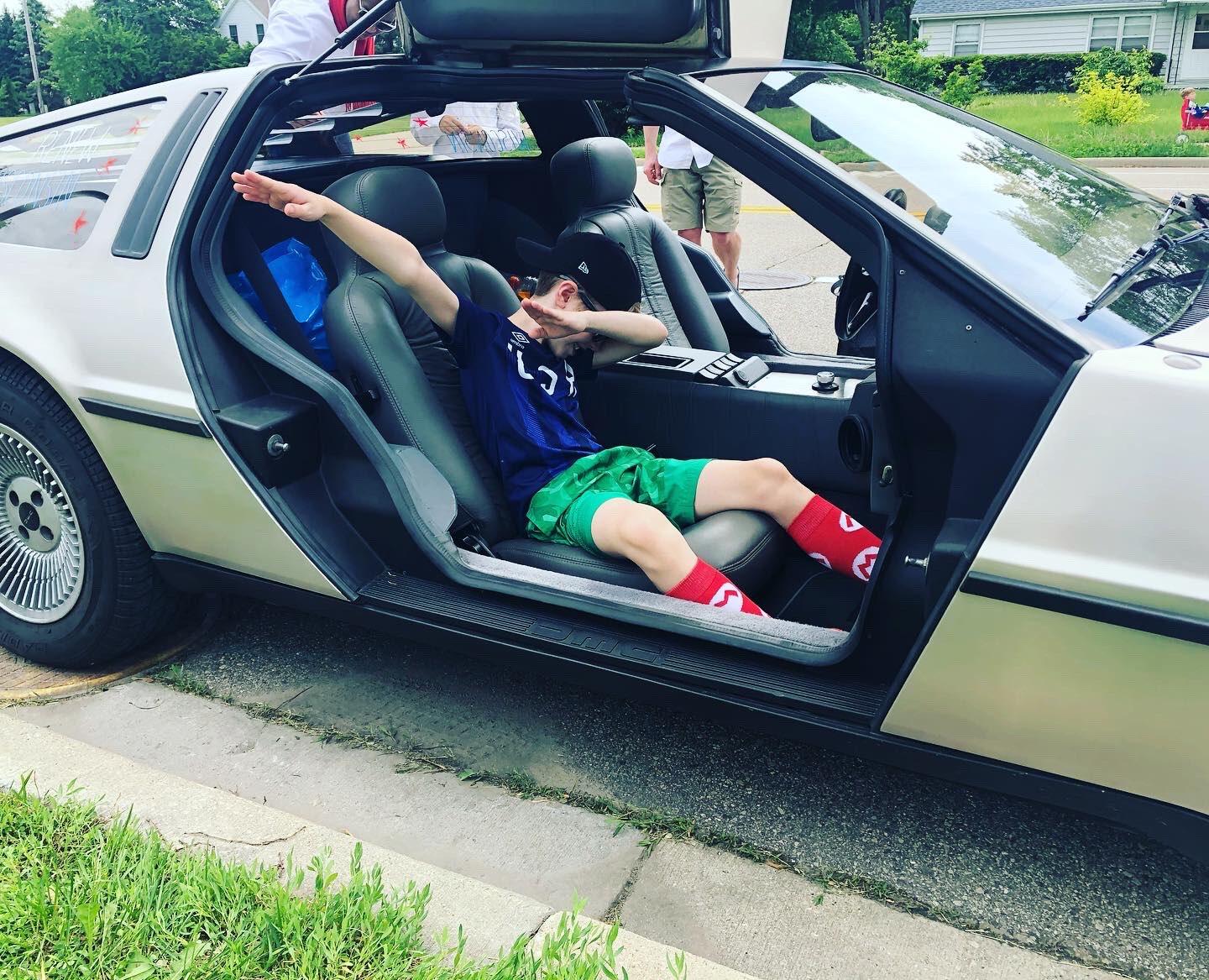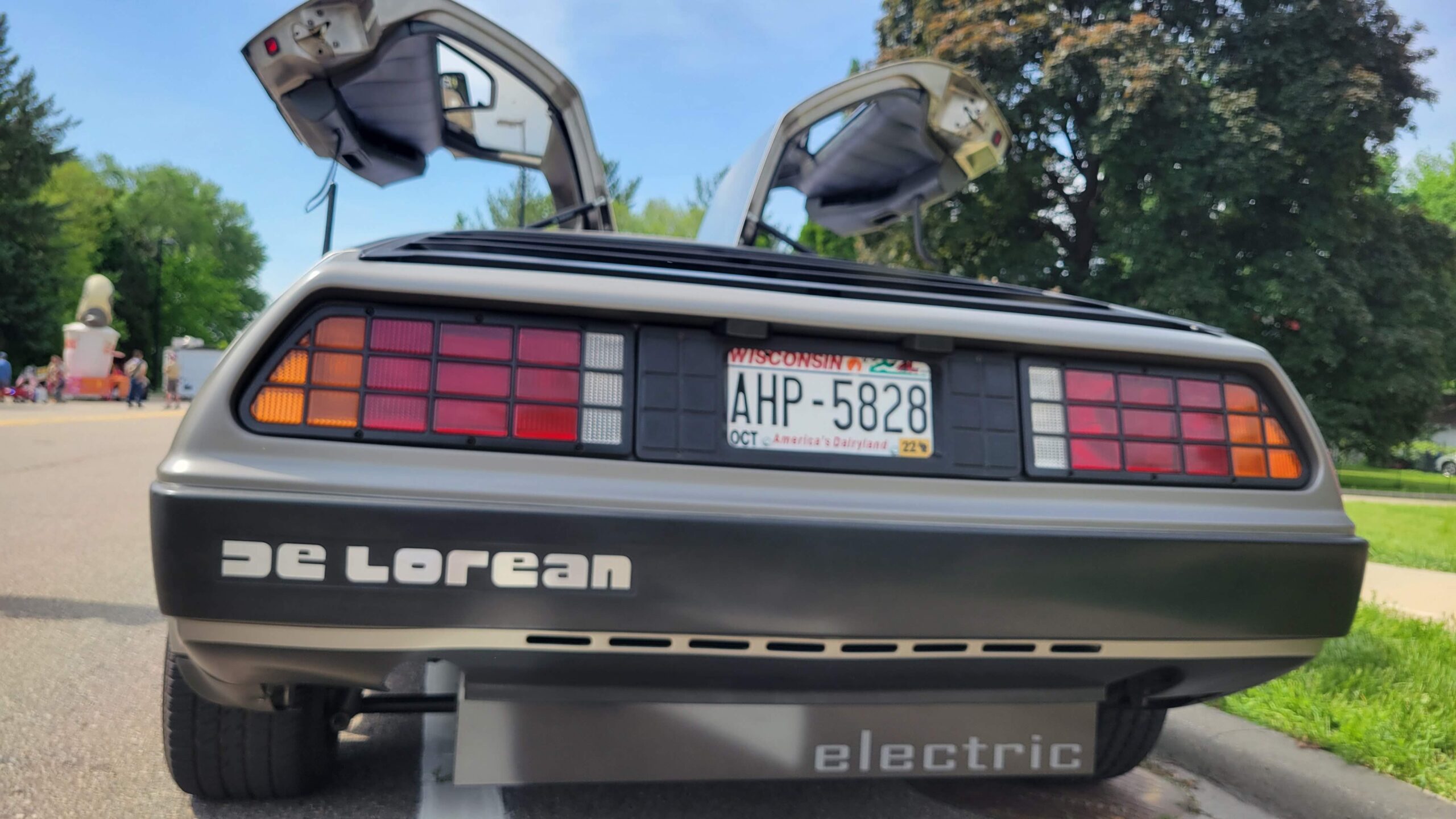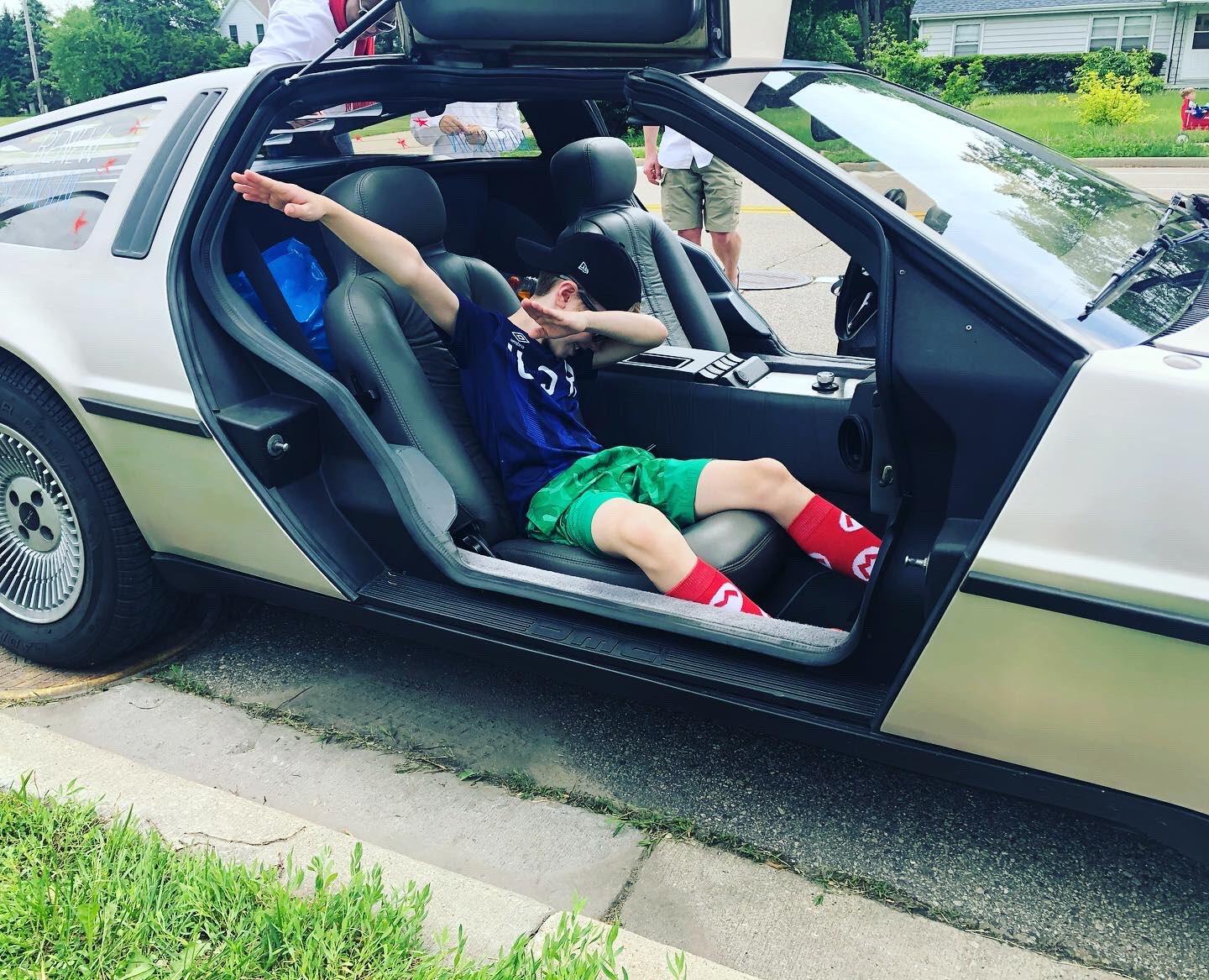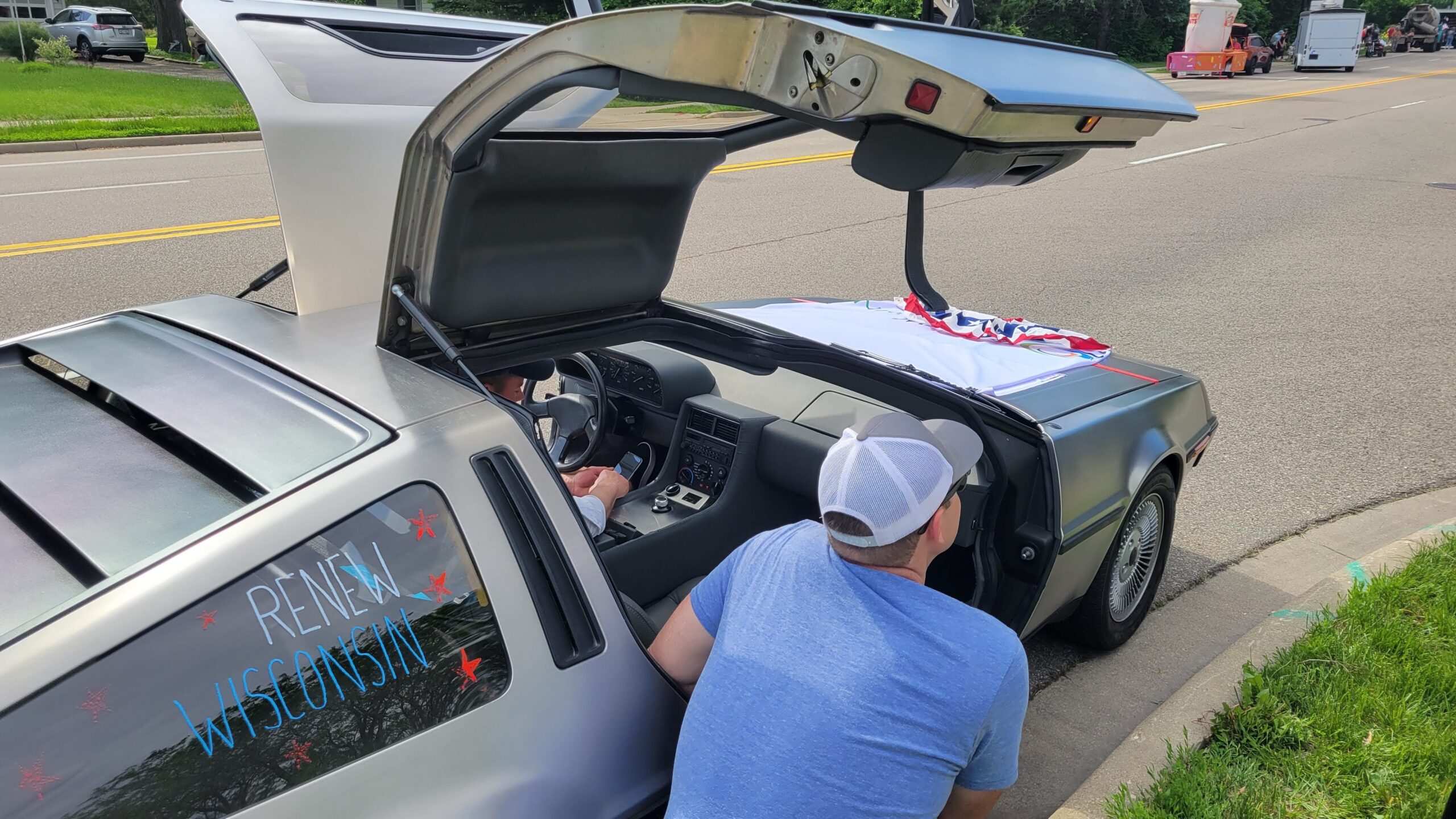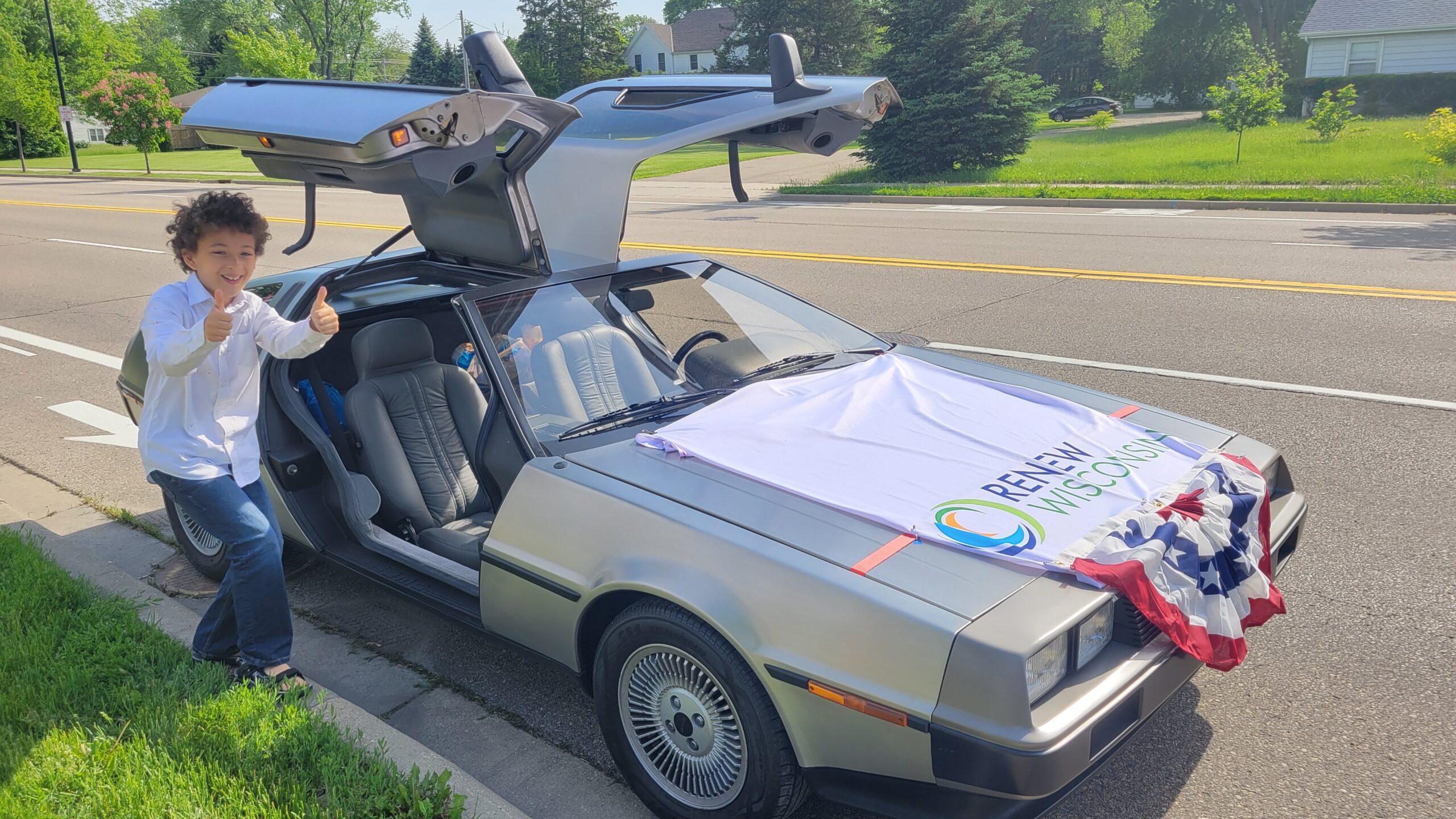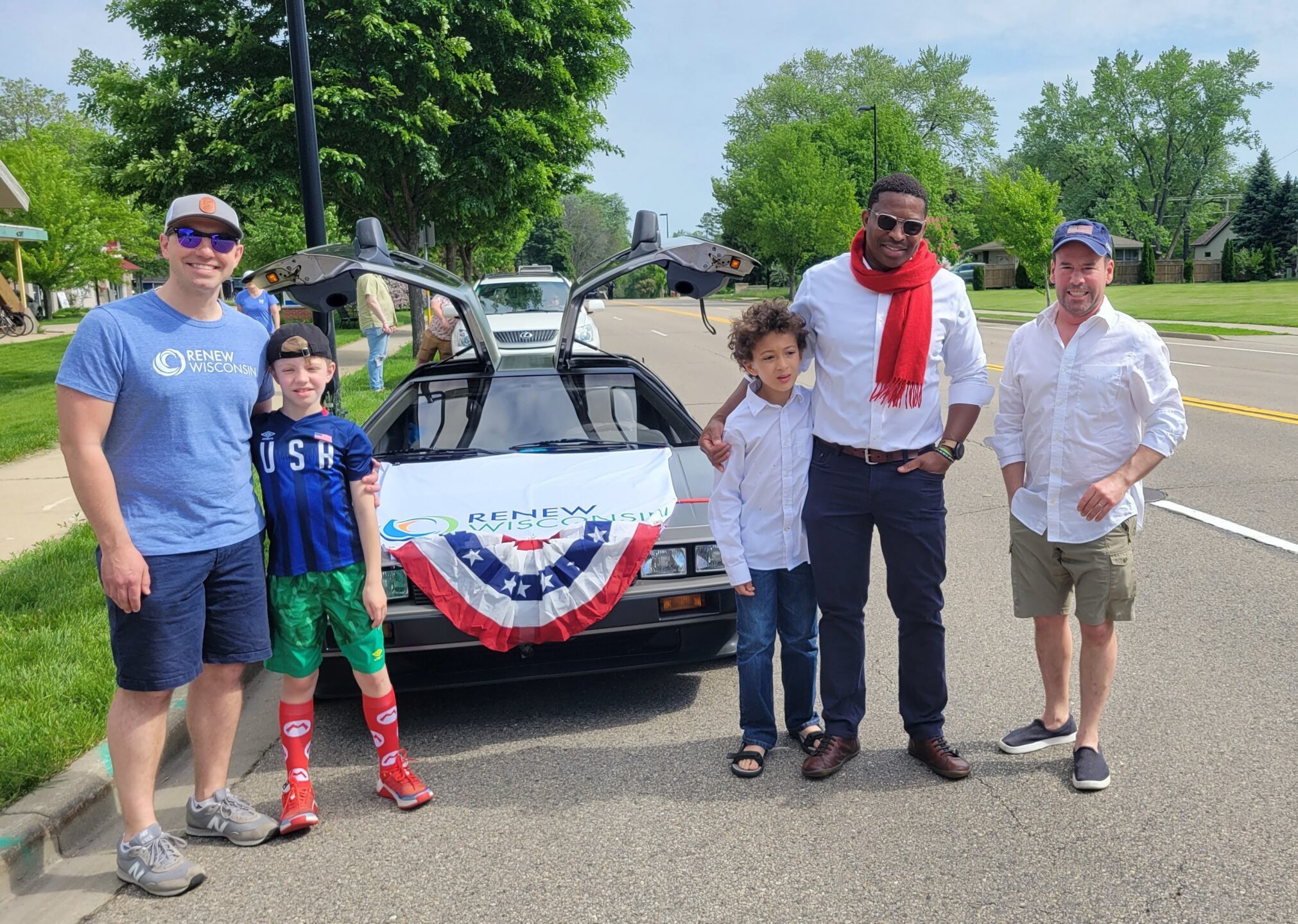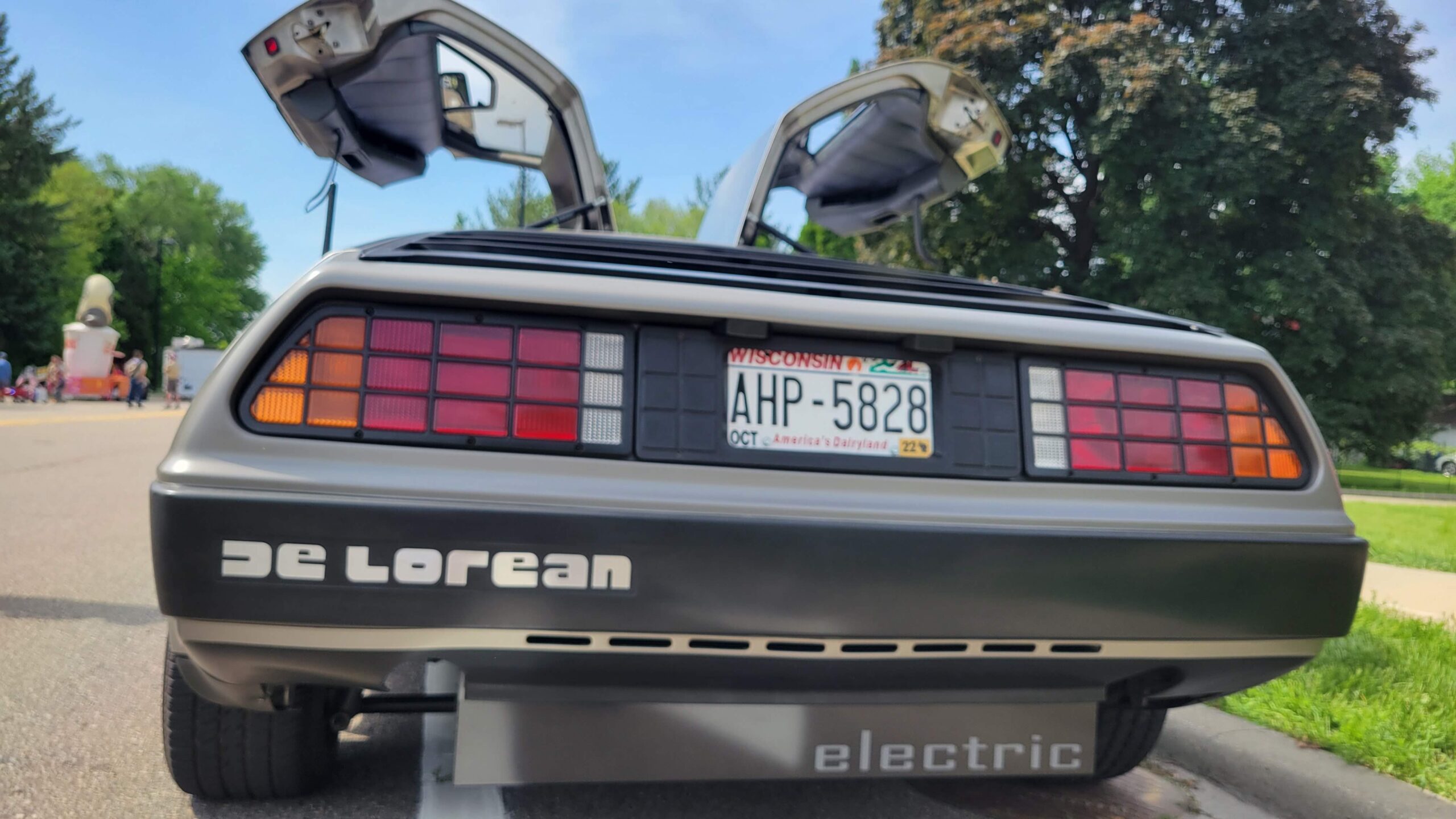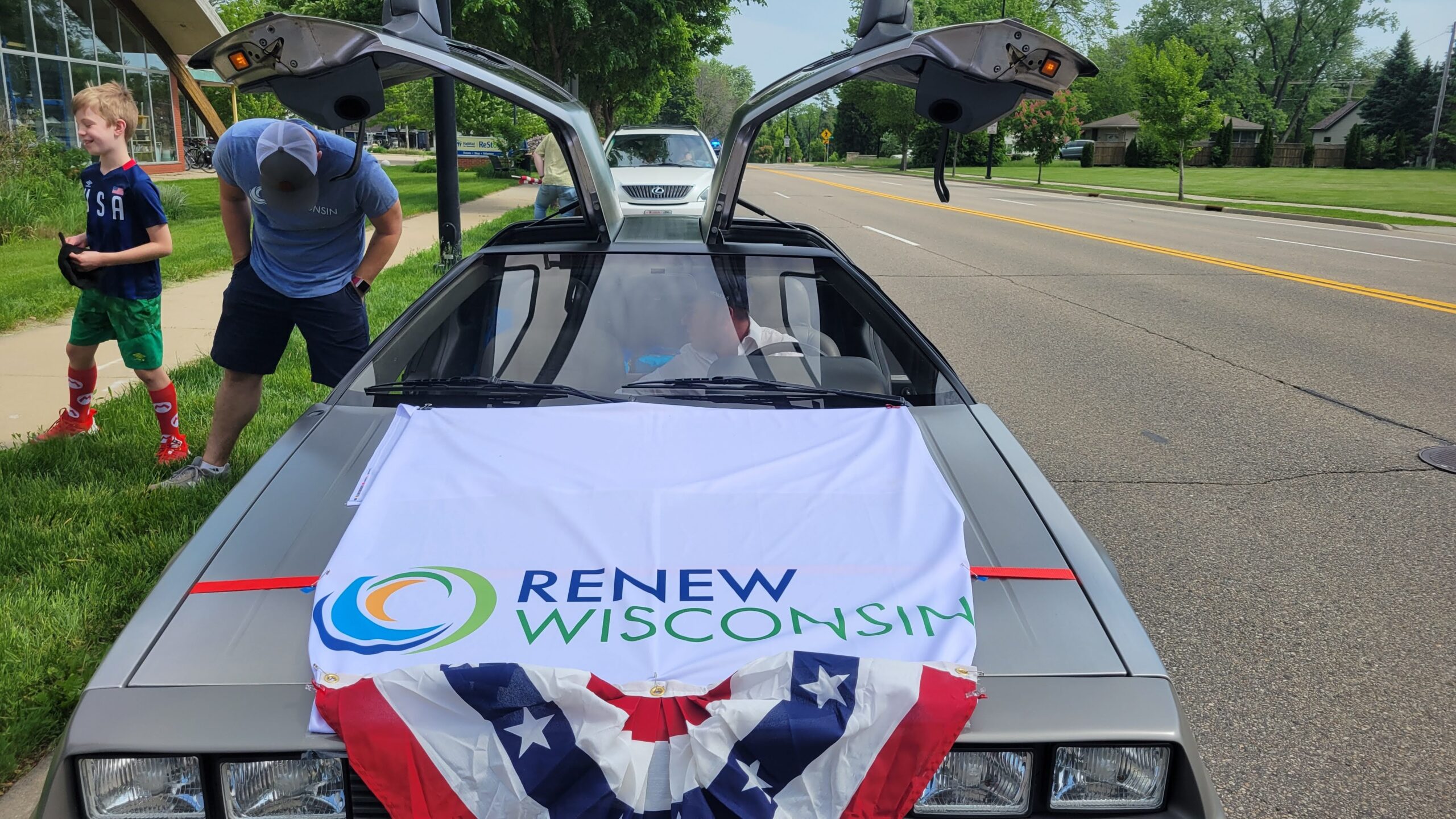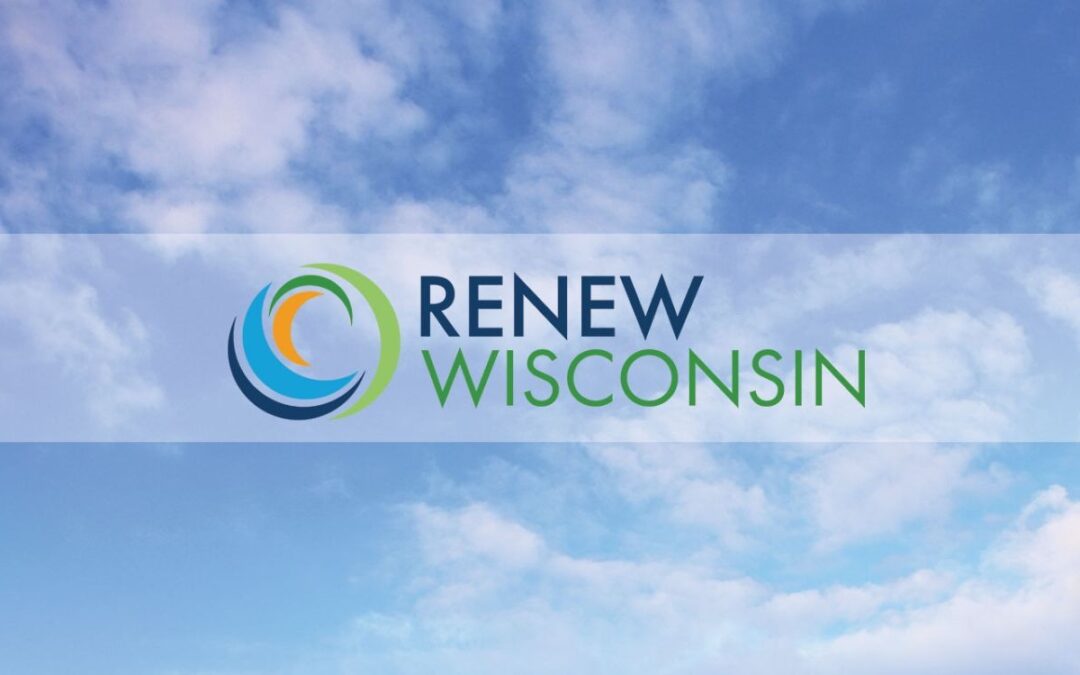
by Jodi Jean Amble | Jul 21, 2022 | Community, RENEW Wisconsin
Thank you to all members who voted in our 2022 Board of Directors Election. RENEW Wisconsin’s Board of Directors plays an important role in setting the strategic vision for the organization. All dues-supporting members of RENEW Wisconsin were invited to vote in this year’s Board of Directors election.
The results of this year’s election include two incumbent board members, Mike Barnett and Jim Funk, and two newly elected board members, Lauren Reeg and Melissa Warning. All will soon begin a three-year term helping us advance renewable energy in Wisconsin.
MEET OUR NEWLY ELECTED BOARD MEMBERS
LAUREN REEG
RENEW Wisconsin is at the forefront of clean energy policy, and I would be proud to sit on the Board of directors. I have extensive experience with Wisconsin energy policy that could aid RENEW’s efforts.
Having lived in Wisconsin for over a decade, I received my Bachelor’s in engineering and Masters in energy policy from UW-Madison while interning at RENEW for two years. Currently, I work for RMI, a national clean energy non-profit focused on building decarbonization and electrification policy in the Midwest.
I’ll bring my knowledge of federal funding for equitable building retrofits, expertise in technical analysis related to cold climate heat pumps and renewable energy, and a national understanding of building policy efforts. These skills can elevate RENEW’s ability to engage in the buildings sector, which is ~17% of WI’s energy-related emissions. In addition to skills from my current role, I have experience in Wisconsin regulatory dockets and EV analysis and policy.
Finally, I am personally interested in sitting on the Board because I deeply care for RENEW. My internship with RENEW launched my career and cemented my passion for Midwest energy policy. This organization does exemplary advocacy, stakeholder engagement, and education that I would be proud to support.
MELISSA WARNING
I would like to become a Board of Director member at RENEW Wisconsin to help drive clean energy initiatives forward in our state. I am passionate about the impact renewable energy and electrification can and will have. There’s significant work to be done in our state to educate key stakeholders as to why the Badger State needs to continue innovating and investing in a future that is not dependent on fossil fuels.
Our future depends on our actions now, and collectively, we need to strategize what options are available today and how we knock down barriers to help build a stronger, cleaner, more vibrant Wisconsin.
As electrification becomes more prominent as an alternative energy source, we must ensure we have the resources to support those efforts. It’s up to us to push for cleaner, more reliable power for people and businesses across the state. Renewable energy options need to become a larger part of the conversation. Change is difficult but necessary as we move towards a decarbonized, decentralized, and digitized energy future.
I am currently the Sr. Marketing Strategy Manager for EnTech Solutions, a full-solution clean energy company, where I lead the strategic marketing initiatives for the business. I am passionate about brand building by understanding trends and authentically connecting with consumers through education and value creation. I have 12 years of experience in marketing strategy, content development, project management, and social media strategy. Before joining EnTech Solutions, I was with Harley-Davidson and Kimberly-Clark.
I hold a Communications/Public Relations degree from the University of Wisconsin – Stevens Point and an MBA from the University of Wisconsin – Milwaukee. I reside in Oshkosh and enjoy spending time with my family, being outdoors, and traveling.
RENEW BOARD OF DIRECTORS
Mike Barnett • Madison, WI
Mike Cornell • Hartland, WI
Beth Esser • Madison, WI
Jim Funk • Winneconne, WI
Samara Hamze • Stevens Point, WI
Alicia Leinberger • Viroqua, WI
Mariah Lynne • Albert Lea, MN
Jessica Niekrasz • Chicago, IL
Lauren Reeg • Boulder, CO
Amy Seeboth-Wilson • Platteville, WI
Josh Stolzenberg • Wausau, WI
Eric Udelhofen • Madison, WI
Ken Walz • Madison, WI
Melissa Warning • Oshkosh, WI
Niels Wolter • Madison, WI
Don Wichert (DIRECTOR EMERITUS/Lifetime/Non-voting) • Madison, WI
Thank you for participating in the election and using your voice to help shape RENEW’s future! And thank you to all candidates who offered their expertise and time to help our organization grow and thrive.
RENEW Wisconsin
RENEW Wisconsin holds elections for our Board of Directors every year. If you or someone you know would like to be considered for our next election, please complete the short form linked below. Racial diversity and inclusion are a priority in our organization, and we strongly encourage people of color and other underrepresented groups to join us in advancing renewable energy in Wisconsin.
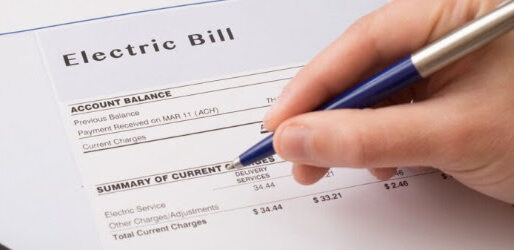
by Andrew Kell | Jul 21, 2022 | Action Alert, Advocacy, Legislative Watchlist, PSC Priorities, Solar
RENEW has assembled a team of experts to develop a comprehensive framework of Distributed Generation (DG) buyback rates as a counter-proposal to utility applications. DG buyback rates determine payments for ALL non-utility-owned electricity generation at the distribution level. For more information, please read this short RENEW parallel generation blog.
The Public Service Commission (PSC) must hear from clean energy advocates in each case. These PSC decisions will impact businesses, local governments, schools, hospitals, organizations, and individuals. We thank all of the clean energy supporters that submitted comments.
Comment periods are now closed for all cases.
WE ENERGIES (6630-TE-107)
WPS (6690-TE-114)
MGE (3270-TE-114)
XCEL Energy (4420-TE-109)
Alliant Energy (6680-TE-107)
RENEW appreciates the supporting comments that were submitted in favor of RENEW’s comprehensive framework for buyback rates. We believe this framework values DG, accelerates carbon emission reductions and provides a path for Wisconsinites to participate in building a clean energy future. Once again, more detail is provided in RENEW’s blog, Buyback Rates and the Business Case for Distributed Generation in Wisconsin.
For additional information on this topic, please contact Andrew Kell, Policy Analyst at RENEW.
Thank you for being a champion of clean energy in Wisconsin!

by Francisco Sayu | Jul 20, 2022 | Community, Electric Vehicles
See how the state plans to spend these funds.
The Wisconsin Electric Vehicle Infrastructure (WEVI) Plan is Wisconsin’s version of the National Electric Vehicle Infrastructure (NEVI) Plan – a Bipartisan Infrastructure Law (BIL) program signed by the Biden administration last year. The NEVI program provides funding to states to strategically deploy electric vehicle (EV) charging stations to facilitate access and reliability. The programs must also support the Justice40 Initiative, which states that at least forty percent of federal investments in climate and clean energy infrastructure benefits are distributed to disadvantaged communities.
The Wisconsin Electrification Initiative (WIEV) within the Department of Transportation (WisDOT) is ready to finalize its plan, which outlines how Wisconsin will spend the $78.65 Million of available funding to build, operate and maintain Electric Vehicle (EV) charging stations in the State. This funding is part of a $7.5 billion package to create a national network of 500,000 EV chargers by 2030.
The NEVI funding will be distributed over five years (2022 – 2026). The first round of funding will prioritize the development of EV charging stations every 50 miles along the State’s portions of the Interstate Highway System within one travel mile of the Interstate. The new charging stations must have at least four EV fast charging ports.
The NEVI program also allocates $2.5 billion for discretionary grants to support charging stations along Alternative Fuel Corridors (AFCs) and community charging grants. The Joint Office of Energy and Transportation will provide additional guidance for discretionary grants in Fall 2022.
WisDOT has opened the Wisconsin Electric Vehicle Charging Infrastructure Plan for public input. Wisconsin residents are encouraged to send comments and feedback using this link by July 24, 2022.
Wisconsin’s EV infrastructure plan is thorough with a smart methodology to identify potential locations for charging stations. However, RENEW would like to see more emphasis on fulfilling the goals of the Justice40 initiative.
Wisconsin has an incredible opportunity to ensure that all communities can benefit from these federal infrastructure investments. RENEW recommends that the WEVI plan allocate adequate resources for outreach to disadvantaged communities. The plan should apportion a budget to hire community outreach professionals that have access to these communities and the organizations that serve them. Building these partnerships will ensure meaningful community engagement, especially concerning BIPOC, rural, limited English proficiency, and low-income communities.
While EVs have a higher upfront cost than internal combustion vehicles, owners can save a lot on fuel and maintenance costs. Still, it can be easy to discount the benefits or impact of EV charging infrastructure for non-EV owners in disadvantaged communities. However, with car manufacturers committing to electric transportation, including GM pledging to be all-electric by 2035 and Ford by 2030, EV charging infrastructure will soon be vital in all reaches of the state. Bringing a complete representation of voices to the table during the planning, implementation, and evaluation of the WEVI plan will ensure equitable participation and access to the benefits of EV infrastructure.
An investment in EV infrastructure is an investment in Wisconsin’s future, and we encourage everyone to engage in this planning process by sending comments and feedback to WisDOT.
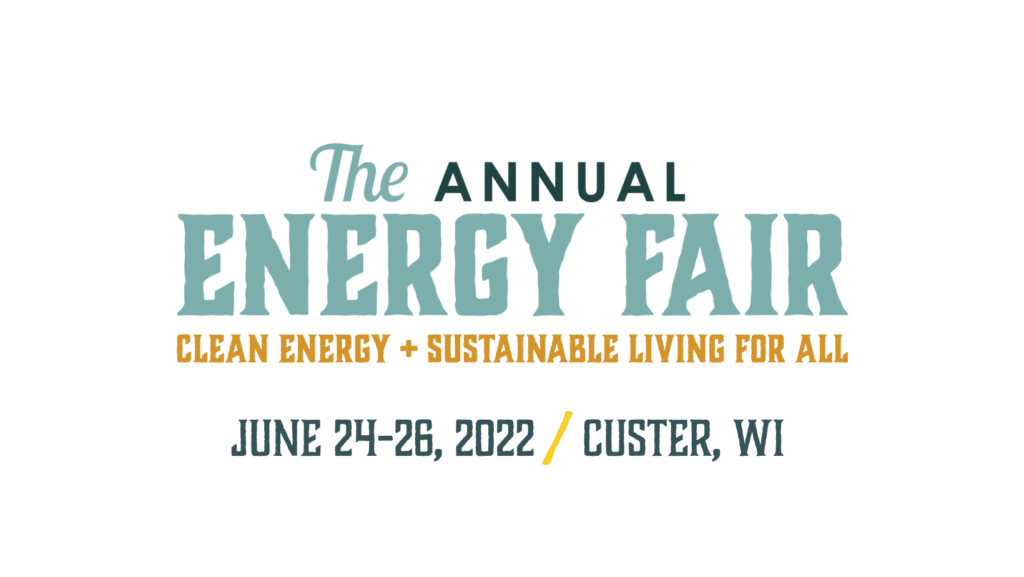
by Jodi Jean Amble | Jul 1, 2022 | Electric Vehicles, Events, Local Government, Programs, RENEW Wisconsin, Renewables, Solar, Solar for Good
Last weekend, the Midwest Renewable Energy Association (MREA) hosted the 31st Annual Energy Fair, bringing people together to learn about sustainability and clean energy, connect with others, and take action toward a sustainable future. The Fair featured workshops, exhibitors, live music, inspiring keynote speakers, family fun, great local food, and more.
RENEW staff presented some compelling workshops and you can download slides from their presentations below.
A Zero-Carbon Grid – How We Get There
Andrew Kell, RENEW Policy Analyst, discussed zero-carbon goals and ongoing planning efforts in Wisconsin. Andrew also discussed a joint study to address policy considerations of this clean energy transition.
Health Benefits of Electric Vehicle Adoption
Christina Zordani, Electric Vehicle Policy Intern at RENEW, discussed a Wisconsin with 100% clean-power electric vehicle adoption. In this workshop, attendees learned how a renewable-powered transportation network would bring significant economic and health benefits to Wisconsin.
Vehicle-to-Grid: Opportunities and Challenges
Francisco Sayu, RENEW Emerging Technology Director, discussed how Vehicle-to-Grid technology unlocks the energy stored in electric vehicles and opens opportunities for energy trading, energy management, and grid resiliency. The workshop delved into two case studies.
Energy Policy and Politics in Wisconsin
Jim Boullion, RENEW Government Affairs Director, reviewed the busiest legislative session for energy-related issues in many years, including solar financing, community solar, and electric vehicle rules.
Small Solar Farms in Wisconsin – Why More Are Needed
Michael Vickerman, RENEW Policy Director, discussed initiatives to expand Wisconsin’s solar marketplace’s middle tier: offsite arrays serving groups of self-selecting customers or whole communities across Wisconsin.
A Clean Energy Toolkit for Local Governments
Sam Dunaiski, RENEW Resources Director, discussed towns, cities, and counties in WI that are building the clean energy economy. By investing in renewables, WI communities are reducing carbon emissions, investing locally, and creating energy independence.
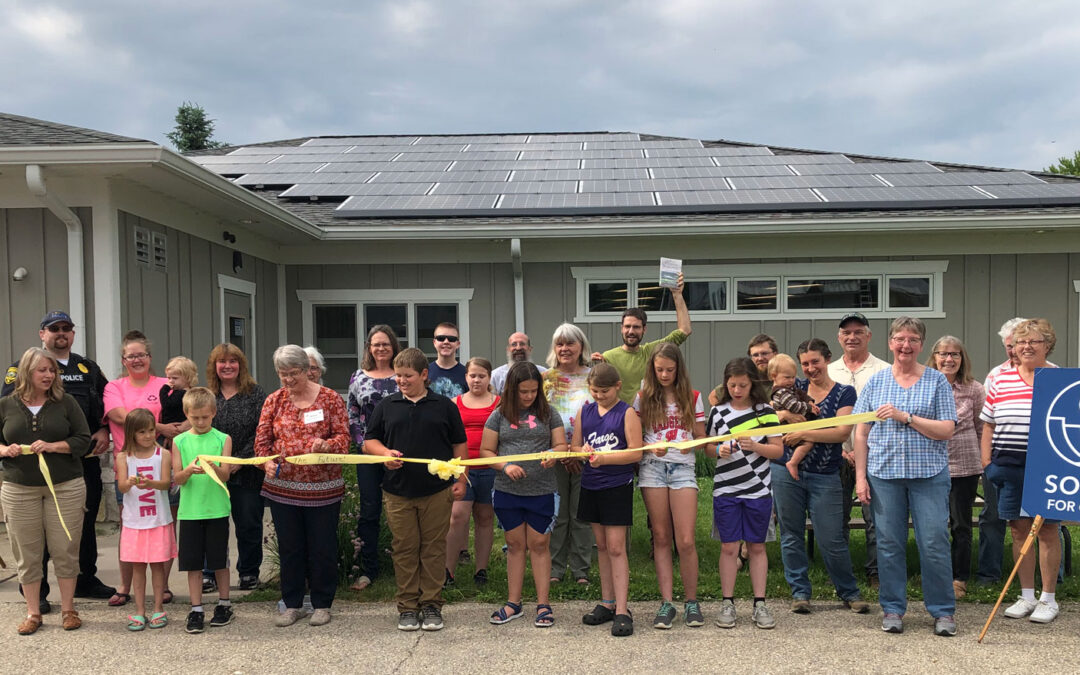
by Sam Dunaiski | Jun 8, 2022 | Community, Solar, Solar for Good
MADISON, WI – The Solar for Good grant program has awarded over $450,000 in grants and solar panel donations to Wisconsin nonprofit organizations. Thirty-five nonprofits will install over 2,200 kilowatts of solar electricity, leading to more than $6 million in renewable energy investments in Wisconsin.
The following organizations have been offered Spring 2022 Solar for Good grants to install new solar energy systems:
Agrace HospiceCare – health care, Janesville
Albany Lions Club – community services, Albany
Aldo Leopold Foundation – conservation, Baraboo
Antigo Public Library – community services, Antigo
City of Altoona – affordable housing, Altoona
Couleecap – community services, Westby
Curative Connections – human services, Green Bay
Dane County Humane Society’s Wildlife Center – conservation, Madison
Edgerton Retirement Apartments – affordable housing, Edgerton
Emmanuel Community United Methodist Church – religious, Menomonee Falls
Homeless Assistance Leadership Organization (HALO) – human services, Racine
Hawthorn Hollow Nature Sanctuary and Arboretum – conservation, Kenosha
Hunger Task Force – meal distribution, West Milwaukee
Lawrence University – education, Baileys Harbor
Madison Area Cooperative Housing Alliance (MACHA) – affordable housing, Madison
McFarland Lutheran Church – religious, McFarland
Milwaukee Teachers Education Association (MTEA) – education, Milwaukee
Movin’ Out – affordable housing, Cottage Grove
Mt. Calvary Lutheran Church – religious, Trempealeau
Northwest Side Community Development Corp – community development, Milwaukee
Outreach Community Health Center – health care, Milwaukee
Racine County Food Bank – meal distribution, Racine
Rivers and Bluffs Animal Shelter – animal shelter, Prairie du Chien
Rooted – agriculture, Madison
Southwestern Wisconsin Community Action Program – community services, Dodgeville
St. Mary Parish – religious, Omro
St. Robert Parish – religious, Shorewood
Tina’s K9 Rescue – animal shelter, Sparta
Trinity Episcopal Church – religious, Baraboo
Union Congregational United Church of Christ – religious, Green Bay
Vernon Economic Development Association – community services, Viroqua
Westcare Wisconsin – human services, Milwaukee
Wisconsin Housing Preservation Corp – affordable housing, Madison
Woodland Dunes Nature Center and Preserve – conservation, Two Rivers
*One organization has asked to remain anonymous at this time.
The grant recipients from the Spring 2022 round represent various sizes and types of nonprofits from across Wisconsin. Curative Connections, an organization that provides services to older adults with disabilities, will install a 280-kW ground-mounted solar array to offset nearly half of their electricity use. Over 80 solar panels will be installed on the rooftop of Outreach Community Health Center in Milwaukee to provide electricity for their medical, dental, and podiatry services. And Couleecap, an organization that works to fight poverty, will install two solar arrays at low-income housing facilities, directly offsetting the electricity use of their tenants.
“Without the Solar for Good Program, it would be difficult for low-income households to participate in solar programs that reduce energy costs and benefit their community,” says Hetti Brown, Executive Director of Couleecap. “The program is an important tool in our effort to reduce energy poverty for the rural residents of Wisconsin.”
Each organization agrees to highlight their solar project and provide education to their community about the benefits of solar energy as a requirement of their grant award.
“There are no publicly available solar installations within Langlade County, and we can offer tours for school children and the public,” said Dominic Frandrup, Director of the Antigo Public Library. “The long-term vision of the library is to also offer EV charging for downtown revitalization and eventually have an EV bookmobile to replace our gasoline van.
The 35 nonprofits are a part of Solar for Good’s 10th round of funding. The program has offered solar grants to 152 Wisconsin-based nonprofits since it began in 2017. Once projects are complete and energized, Solar for Good grant recipients will add over 7.3 megawatts of renewable energy to Wisconsin’s electric grid, providing enough electricity to power approximately 1,400 Wisconsin households.
_________________________________________________________________________________________________________________________________________
About Solar for Good RENEW Wisconsin’s Solar for Good initiative fosters the expansion of solar power among mission-based nonprofits and houses of worship in Wisconsin. Through a generous partnership with Couillard Solar Foundation, RENEW Wisconsin awards grants and solar panels to nonprofit organizations, helping them switch to clean, renewable, solar energy.
About Couillard Solar Foundation The Couillard Solar Foundation is a 501c3 nonprofit and our mission is to further the urgent path to decarbonization for Wisconsin, and create a cleaner, safer environment for everyone, regardless of socio-economic status. We help schools and nonprofits gain vital access to solar power, by providing solar panels, programs and education through the Solar for Good and Solar on Schools grant programs. For more information please visit www.CouillardSolarFoundation.org or follow on LinkedIn, Facebook, or Instagram.
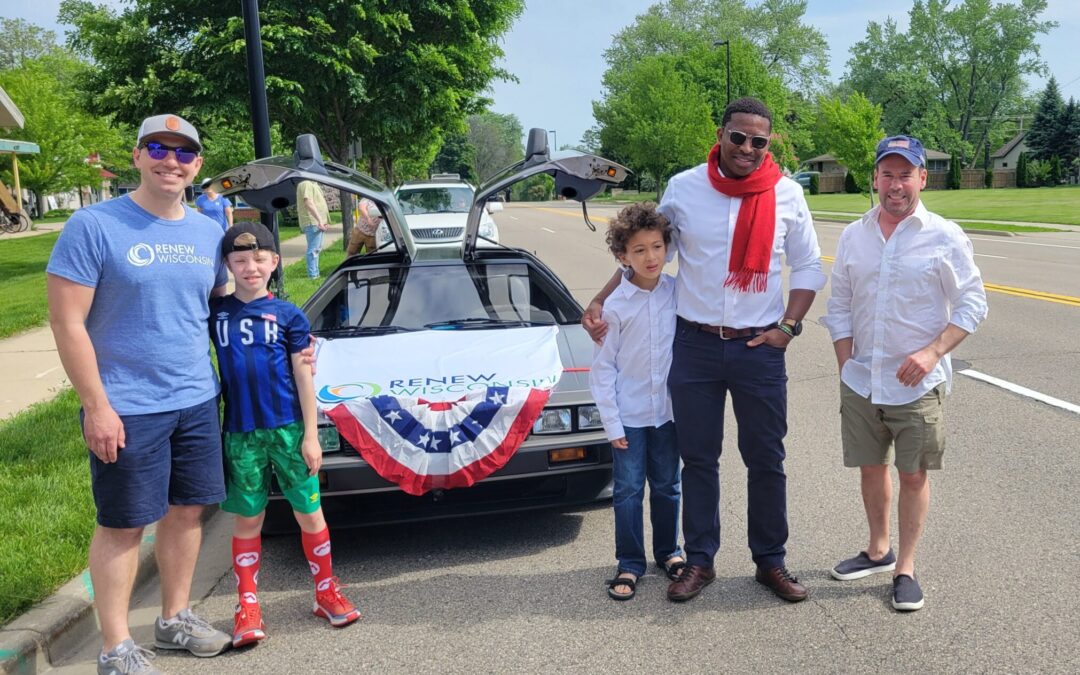
by RENEW Wisconsin | Jun 7, 2022 | Community, Electric Vehicles, RENEW Wisconsin
On Monday, May 30th, RENEW Wisconsin was honored to be able to participate in the Monona (WI) Memorial Day parade. Emerging Technology Director Francisco Sayu and Distributed Resources Director Sam Dunaiski were in attendance with their family members and a few large bags of candy.
The parade offered staff members a chance to get out and meet with members of the community and honor those Americans who gave their lives for their country.
“The parade was a good reminder of the sacrifices made to protect our people and our collective capacity for accomplishing great things,” said Sayu. “A simple – but meaningful – example of our ability to come together to celebrate our progress and envision a bright future – despite our differences.”
Friend of the organization, Geoff Hoffman, owner of Hoffman Manufacturing, offered his custom-redesigned, all-electric DeLorean to use as the RENEW vehicle for the parade. The car was an instant hit with many parade-goers, even before many realized it was an electric vehicle (EV).
“It was great to attend the parade again after a two-year COVID hiatus,” stated Hoffman. “This event is all about honoring the folks that have served and sacrificed for us.”
RENEW staff answered dozens of questions from the public about EVs and how using renewable energy for EV charging could help us achieve deep decarbonization of our transportation sector. More importantly, the parade offered an opportunity for staff to illustrate the benefits of a decarbonized economy for Wisconsinites.
“We need more opportunities to find common ground,” continued Sayu. “I enjoyed seeing so many different families coming together to share this experience.”
RENEW staff had a fantastic time at the parade and are incredibly grateful for the opportunity to participate. We hope we opened a few minds to renewable energy and electric vehicles, and we had a great time doing it!
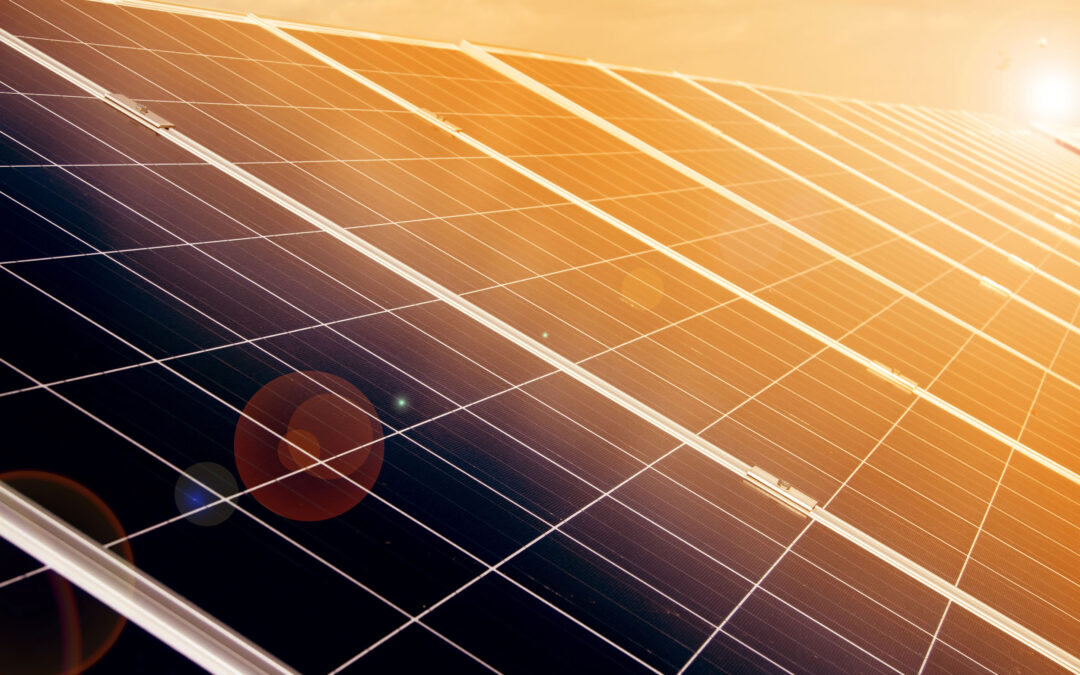
by Michael Vickerman | Jun 3, 2022 | Advocacy, PSC Priorities, Public Service Commission, Renewables, Solar
On May 26th two petitions were filed at the Public Service Commission (PSC) seeking rulings to clarify the long-simmering issue of third party-financed renewable energy generation serving individual customers behind their meters.
In one of the petitions (Docket No. 9300-DR-106), Vote Solar, a national nonprofit advocacy organization with 500 members residing in Wisconsin, asks the agency to affirm the legality of a tax-financed solar system installed at the residence of one of its Wisconsin members. In the other petition (Docket No. 9300-DR-105), Custer-based Midwest Renewable Energy Association seeks a similar affirmation, based on relevant case law precedents, enabling customers to host third party-financed electric generation systems on their premises without fear of being designated a public utility. You can read the petitions online at the above-referenced docket numbers on the PSC’s website.
Although the two petitions take different approaches to the legal question at issue, a positive ruling from the PSC on either or both of these filings would achieve the desired result: the ability of individual customers to access electricity generated on their premises from installations owned by third parties. For that reason, RENEW is urging stakeholders—solar contractors, climate and energy justice advocacy organizations, local governments, and legislators–to signal their support for both petitions through statements of support filed at the PSC.
When the PSC receives a Declaratory Ruling petition, it is obligated to open a 20-day initial comment window prior to deciding whether or not to accept that petition. Accepting the petition is a prerequisite for rendering a decision on the legal merits of the case.
RENEW is asking stakeholders to submit statements in both proceedings urging the PSC to accept the petitions and convene a proceeding to affirm third-party financing on its merits, emphasizing the following themes:
- Businesses need clarity on this legal question before they will commit to providing renewable energy to customers with equipment they would own. Though customer demand for solar PV is growing, the ongoing legal ambiguity acts as a powerful disincentive to businesses contemplating investments in equipment and staff to serve that part of the market. The risk of fighting expensive legal battles with utilities also diminishes business appetite for doing business in Wisconsin.
- Third-party financing eliminates the upfront financial commitment that often stops low and middle-income households from pursuing solar. As a market-building tool, third-party financing can expand the residential customer base more effectively than either rebates or tax credits. Third-party financing is a linchpin mechanism for securing a just energy transition that engages customers of all income levels.
- The lack of legal clarity on this issue is an unjustifiable restriction on property owners’ ability to supply themselves with clean energy produced on their premises. The PSC has had several opportunities in recent years to settle this issue but declined to do so. It is past time for the PSC to clear a path for the homeowners, businesses, and nonprofits desiring to access onsite solar power owned by a third party.
Currently, Wisconsin case law allows for third-party financing of energy projects, but some electric utilities have denied interconnection to installations that would have been owned by third parties. They contend that such installations should be regulated as public utilities, even though they are designed to supply energy to only one entity: the host customer. In our view, a business that installs and operates energy equipment on a customer’s property for that customer’s exclusive use should not be regulated as a public utility.
PSC affirmation for third-party financing is essential to spreading the benefits of clean energy to all Wisconsin utility customers.
The deadline for submitting comments is June 14th.
If you have questions or represent a business or organization that would like to engage on this issue, please contact Michael Vickerman at mvickerman@renewwisconsin.org.
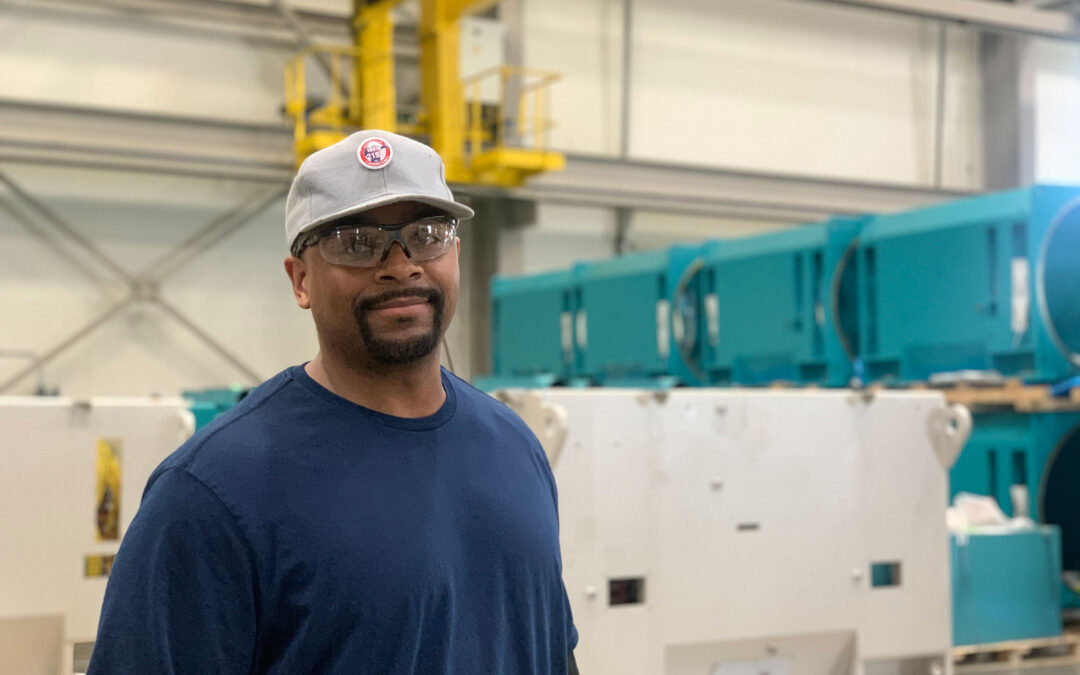
by Jodi Jean Amble | Jun 1, 2022 | Clean Energy Works, Hydroelectric, Jobs, Renewables, Solar, Wind
Akinlana Abdalla is tall and self-assured with a gentle, almost playful demeanor. He was “the kid who always got in trouble for taking his toys apart to see how they worked.” This curiosity and innate engineering mind make him particularly good at his job as a Wind Turbine Repair Specialist at Ingeteam in Milwaukee, WI, where teams of engineers and technicians specialize in supporting solar, wind, hydro, and other renewable energy products.
Akinlana was born in Milwaukee, where he now lives with his wife and children. He has an extensive background in commercial construction and is a Journeymen Carpenter by trade. His career took him from deep tunnel mining through Laborers’ Local 113 to building bridges for Zenith Tech, later starting a business with his wife, and eventually earning an undergraduate degree in general management. He was attracted to Ingeteam because he wanted to move away from management and get back to a more “hands-on” work environment aligned with his values.
Ingeteam is a global renewable energy solutions company. Their 140,000 square-foot state-of-the-art production facility in Milwaukee is the only place in the United States where wind turbines are built by an American workforce.
Ingeteam customers send wind turbine generators that cannot be repaired up the tower. Akinlana and his team perform mechanical and electrical diagnostics on the generators to determine their failure. Ingeteam then submits a report to the customer and a cost estimate for the needed repairs. If the customer decides to move forward with the repairs, Akinlana and his team “repair it and send it back to the customer like new,” adhering to the Code of Excellence established by IBEW 2150.
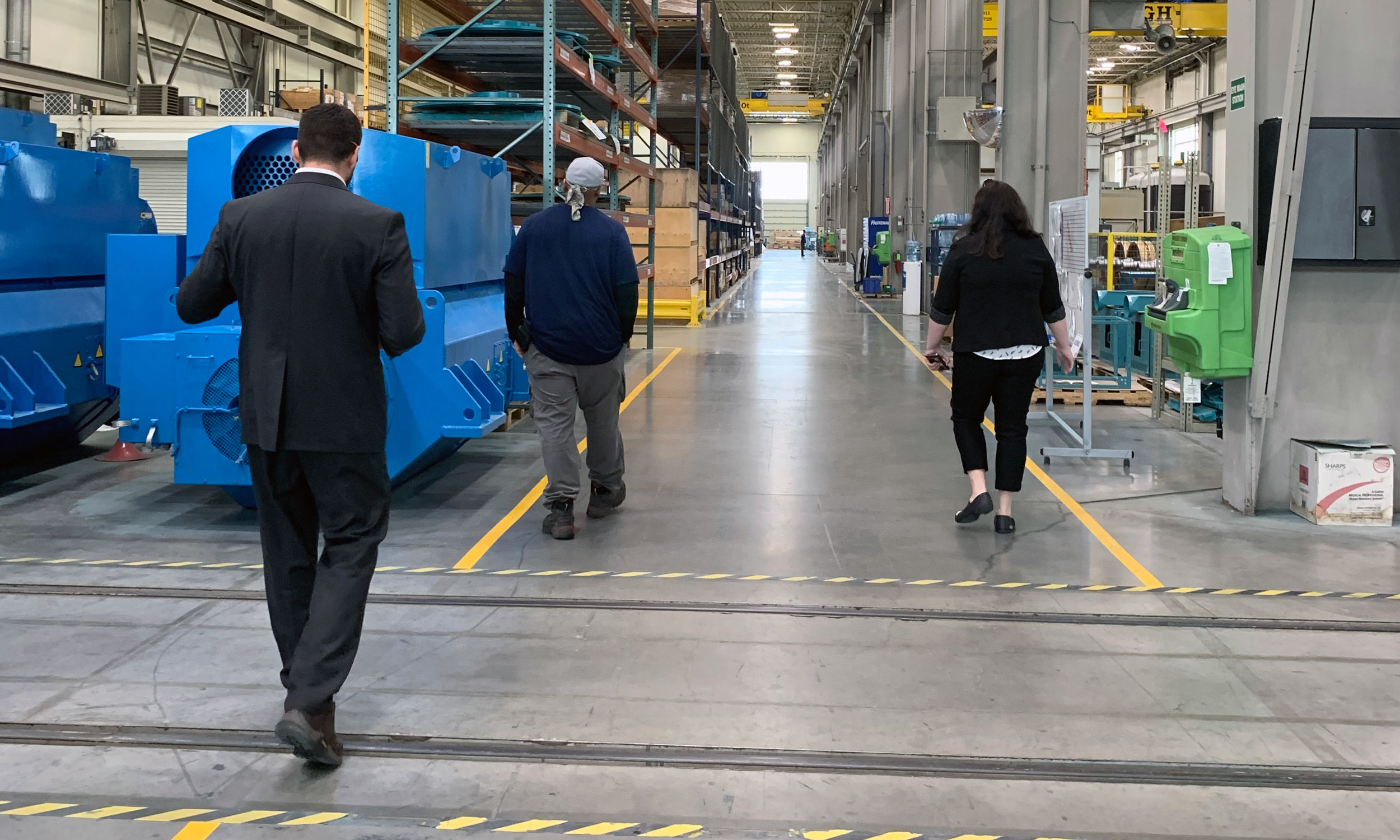
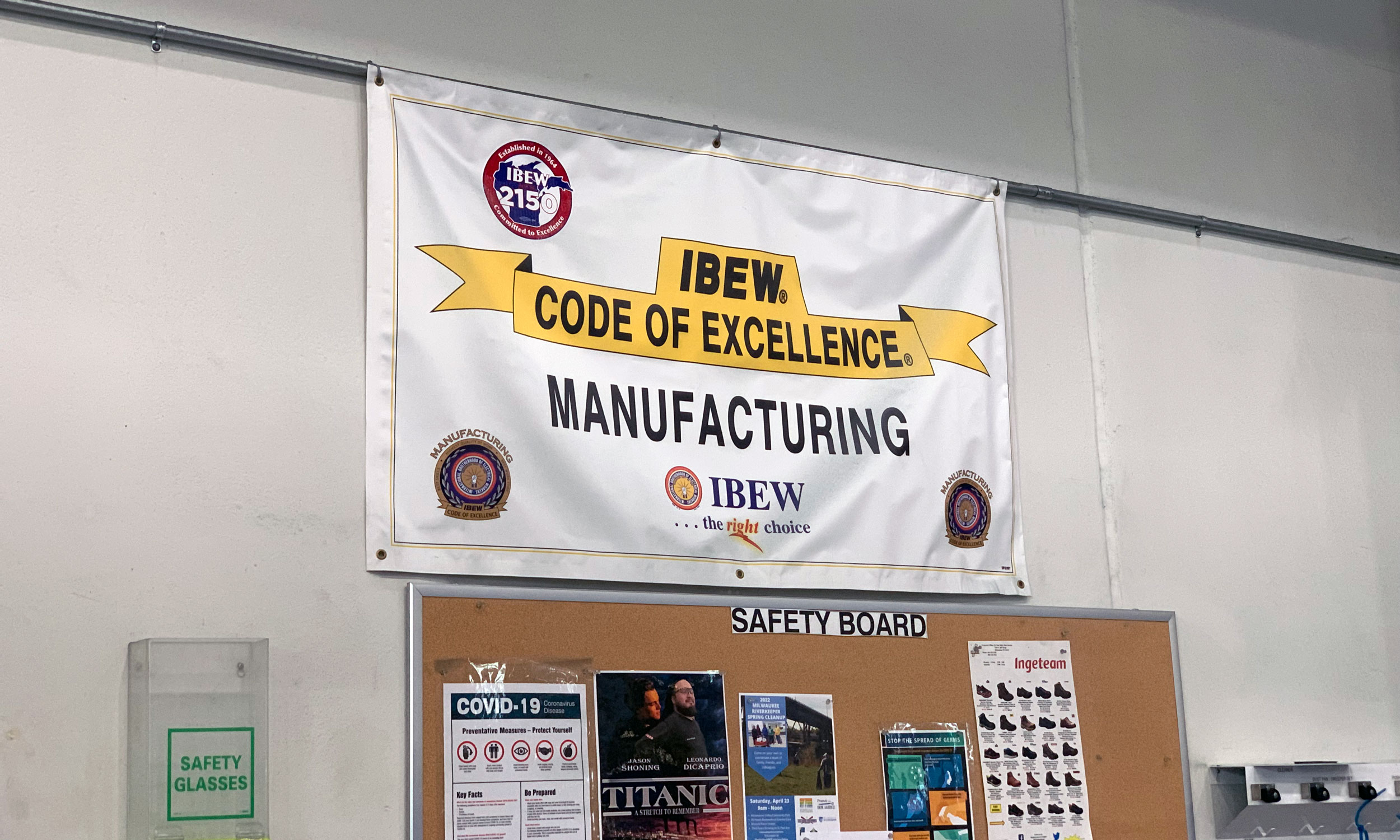
“You never know what you’re going to get,” Akinlana said. “There’s no monotony. Every day is something different. We could get the same [generator] models coming in on one truck, but all of them will have different issues. When we open it up, it’s just fun trying to get to the bottom of what the root cause of a failure is.”
While it seems as if Akinlana was born to do this work, he thinks his success is determined by having a positive attitude and complementing it with aptitude.
“If you have a good attitude, that’s 90% of it,” he said. “Developing your mechanical aptitude and other skills to complete a repair is something that can be taught. But it starts with just having a can-do attitude and just appreciating the opportunity to be able to do what you do.”
His passion for his work extends beyond his enjoyment of taking things apart and then putting them back together. Akinlana has a deep sense of the impact of his work.
“Ingeteam provides something imperative for preserving and conserving the future environment, not only for ourselves but for our children and generations to come,” he said. “Because we know that we have not learned to discipline ourselves from gluttonous consumption, we have to have green energy.”
“This job aligns with my personal social responsibility.” Akinlana continued. “It’s nice to work for an entity where you share a passion for ensuring that we preserve our environment. Being an avid outdoorsman, being out in nature with my children, fishing, and hiking, it’s important to me that I give back. To be able to work doing something that allows me to do that, I think is absolutely profound.”
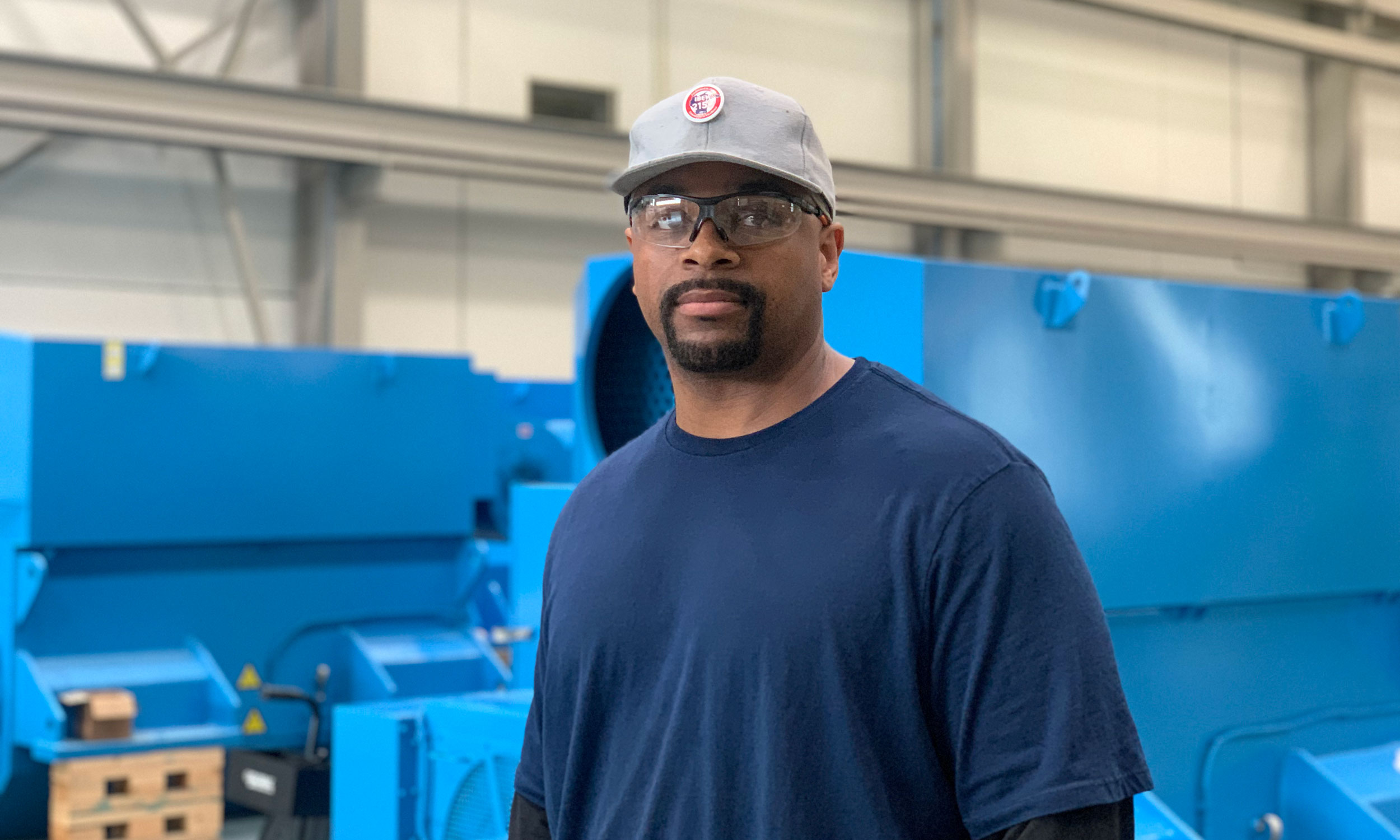
His team appreciates his passion and skills. Garan Chivinski is the Human Resources Manager at Ingeteam and the one who introduced him to RENEW Wisconsin.
“He’s a wealth of knowledge,” Garan said. “We’re seeing a time when those units [wind turbine generators] are coming back in, and they need to be serviced. They need some love and care to renew themselves and not create excess waste that they weren’t intended to create. AK [Akinlana] has really led that here for us, to get absolutely every single last spin, every single last value out of that resource possible for our customers and for the community. That’s why when you asked about somebody who might be your boots on the ground, somebody who’s the future of the wind industry in Wisconsin, this is the guy.”
Akinlana IS a wealth of knowledge. He’s also the kind of person who considers his work and actions and their effect on the world. This kind of thoughtfulness and passion is inspiring, and it’s easy to see why he is so respected and valued at Ingeteam.
“It’s nice to watch Elon Musk trying to fly off into another part of space,” Akinlana added. “But ultimately, when you see them go up in the rocket, you’re just going into another part of where you already are. Interesting, right? The reality is that we have this one small globe to live on, and no amount of money will get you away from that reality. Even if you set up something on Mars, you would have to come back here to get resources to live off of there. We have this [Earth], and we have to take care of this. Our level of consumption without trying to curb the adverse effects is damaging for the future. So that’s why this work is really, really important to me. I enjoy it every day. It’s not even work, not work at all.”
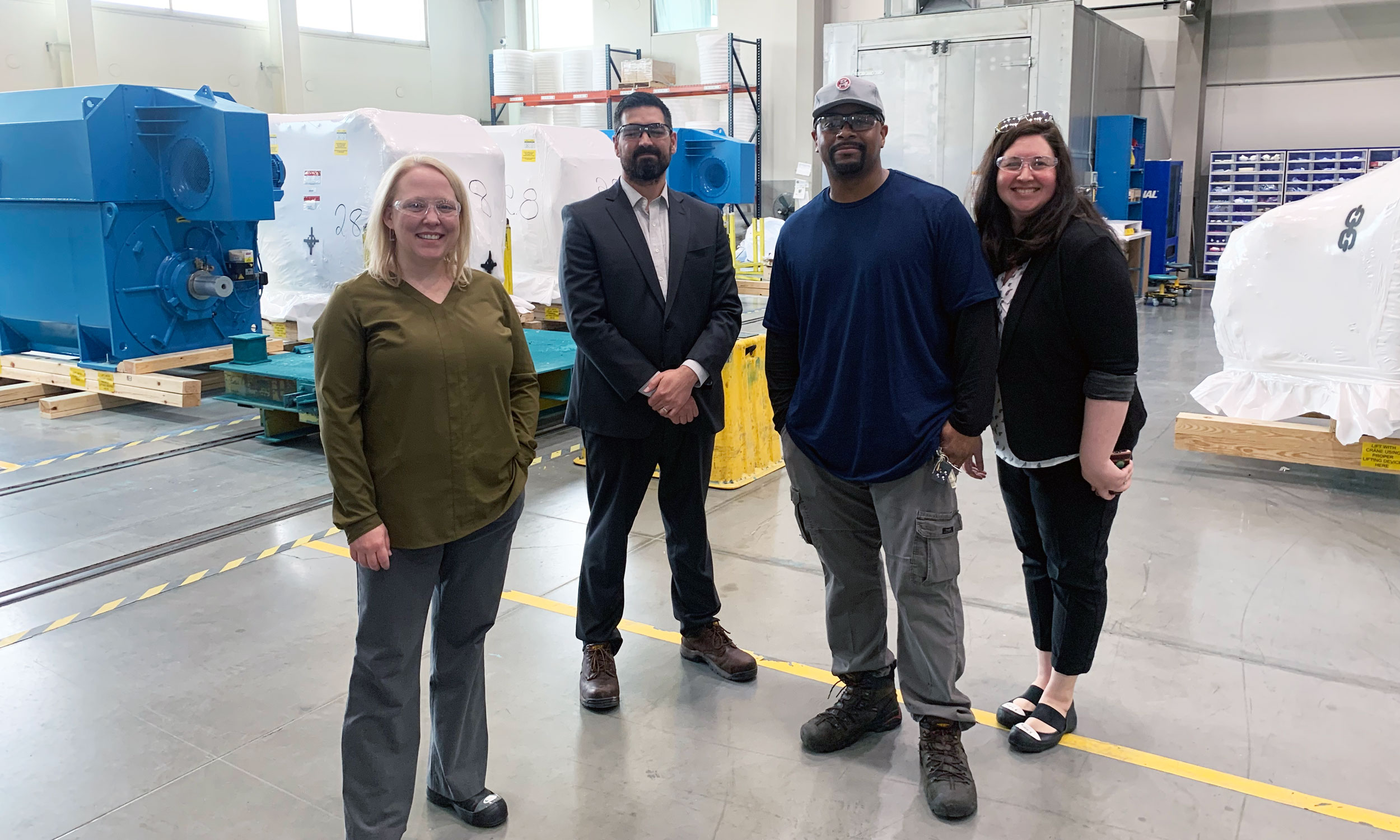
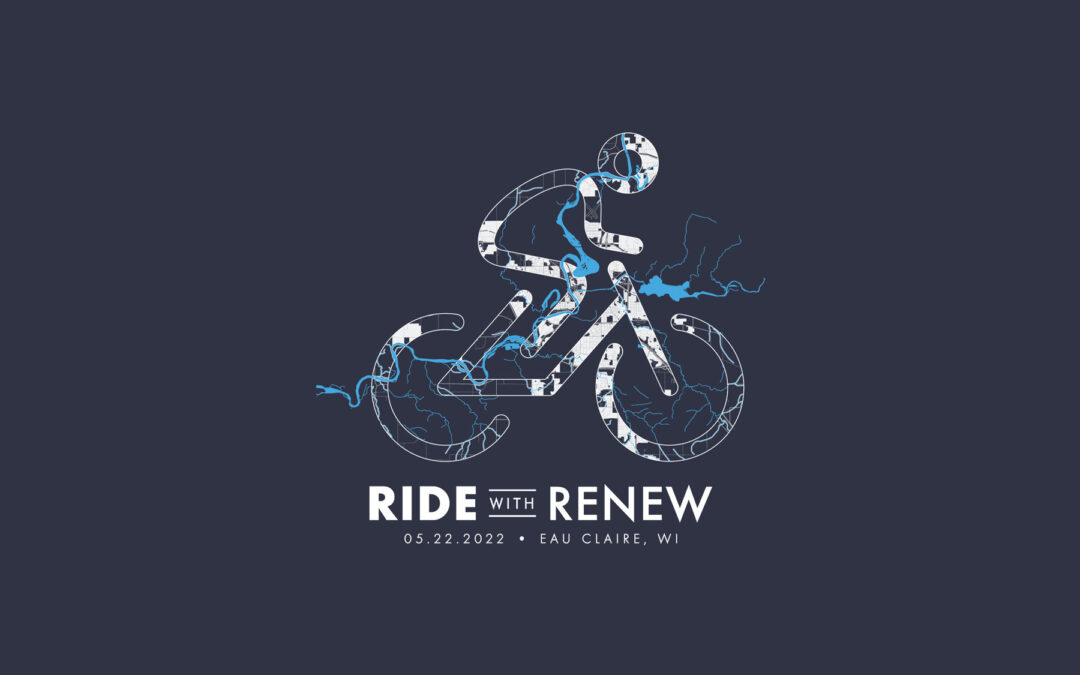
by Jodi Jean Amble | May 25, 2022 | Community Solar, Events, Geothermal, Local Initiatives, RENEW Wisconsin, Solar
On Sunday, May 22, RENEW Wisconsin, with presenting sponsor, Xcel Energy, hosted the 9th Annual “Ride with RENEW” bike ride fundraiser in Eau Claire, WI. Starting at Carson Park, the 16-mile route featured the Chippewa River State Trail and Lakeshore Trail. Over 20 riders enjoyed a chilly spring day pedaling and learning about the innovative renewable energy installations powering Eau Claire, Wisconsin.
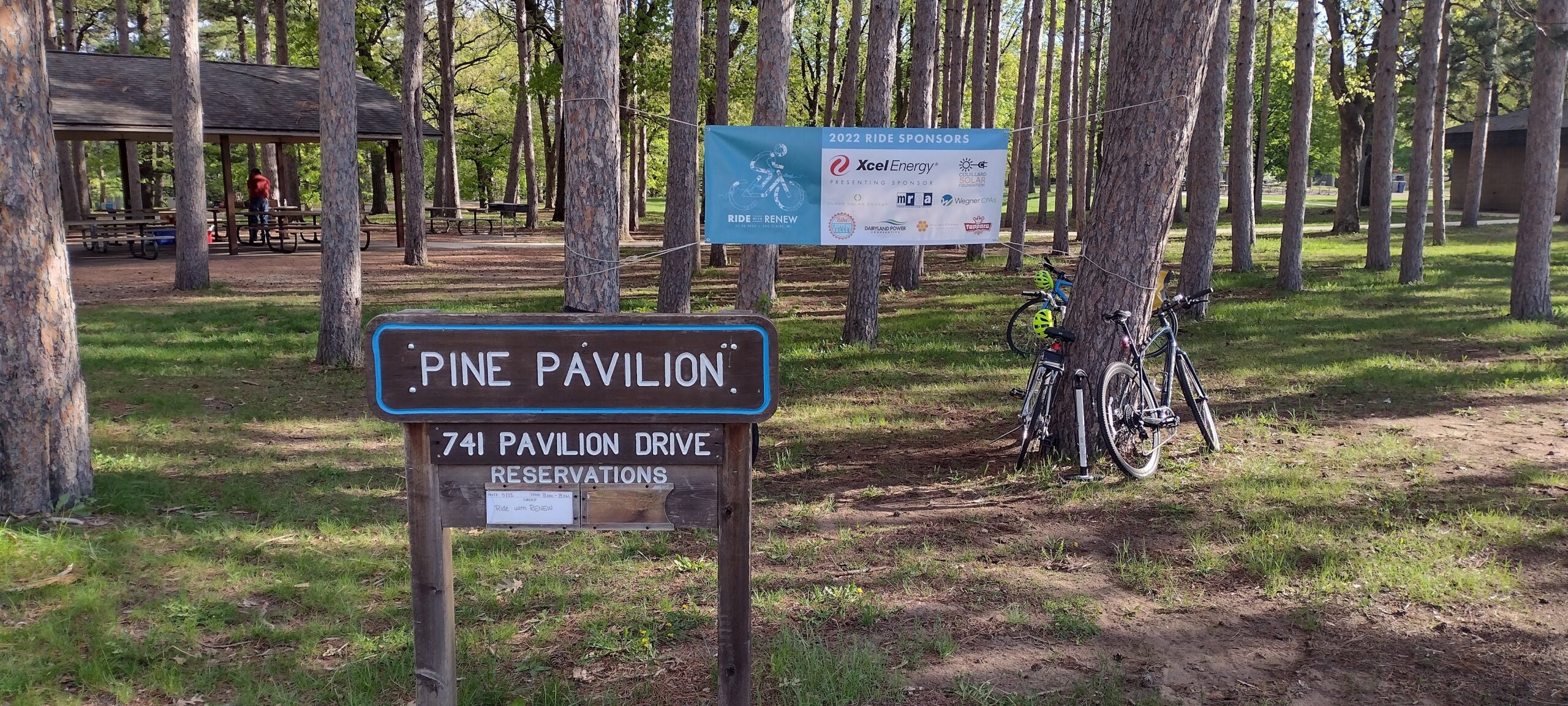
The first stop of the 2022 tour was Solar Forma. Brian Graff showed riders the company’s unique solar designs, including E-cacia trees, their signature product. Solar Forma wants to expand its solar designs to include a solar “wave” carport with electric vehicle charging.
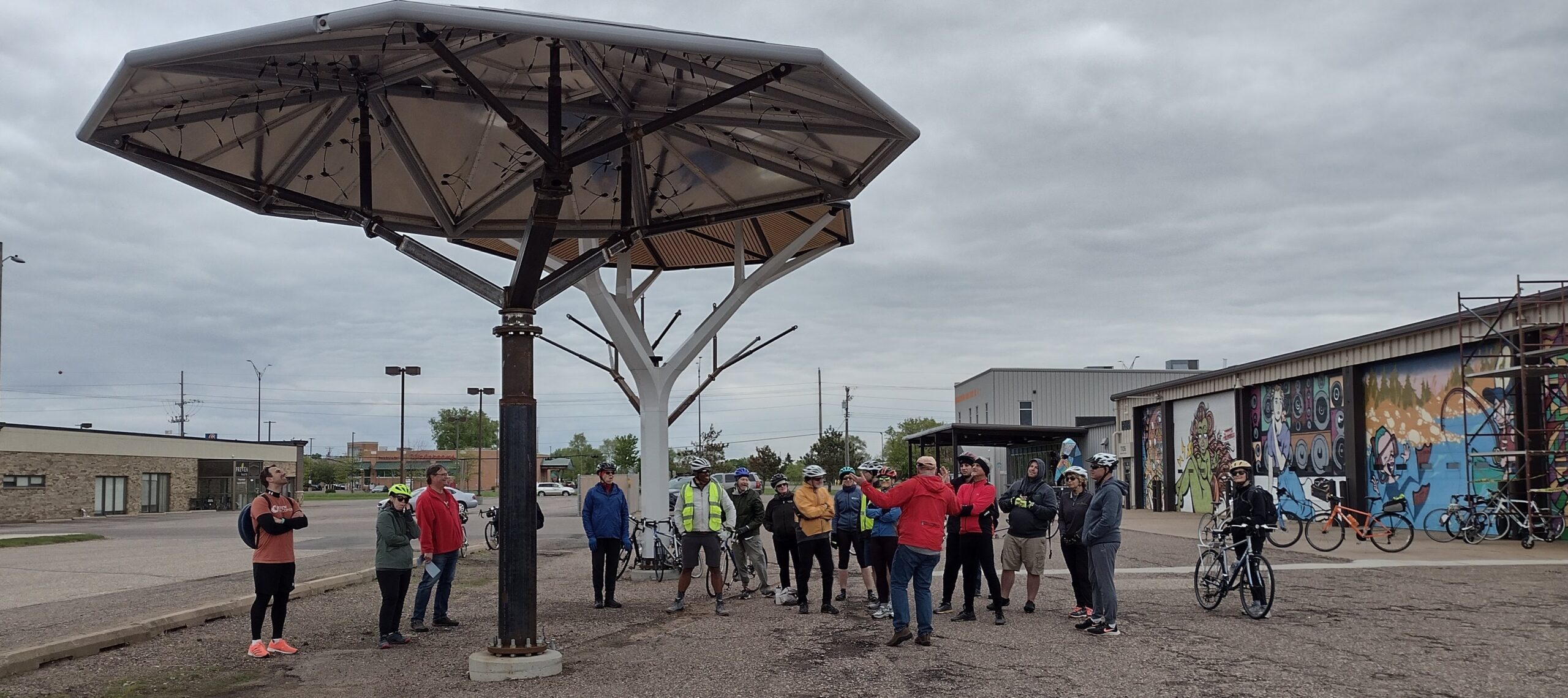
Next, riders visited Xcel Energy’s Sky Park Solar Garden. Julie Thoney and Zeus Stark provided an up-close look at the 1MW community solar garden at Sky Park, and riders also learned about Xcel’s three other Wisconsin community solar gardens. Xcel was the first investor-owned utility in the country to propose a net-zero carbon goal. They’re looking to expand their renewable portfolio in all operating states, including Wisconsin.
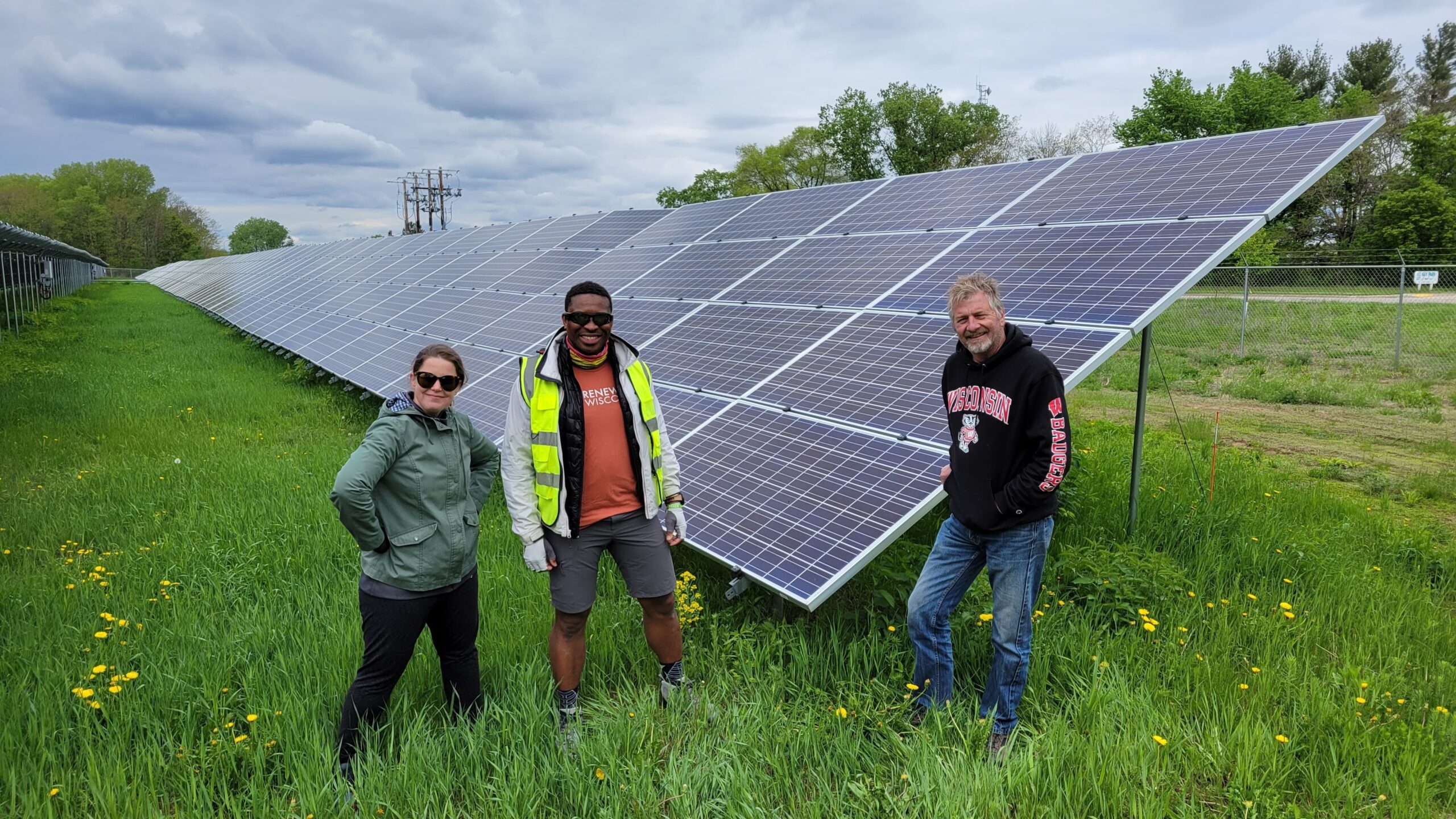
The next stop on the ride was Chippewa Valley Technical College (CVTC) Energy Education Center. Adam Wehling and Zeus Stark showed riders a variety of renewable energy generation sources on display, including several solar layouts and multiple small wind turbines, which is the same equipment CVTC uses in their class lessons. Riders also heard from Claire Lindstrom from the Couillard Solar Foundation about their work to make solar more accessible to public schools and mission-based organizations throughout the state. The Couillard Solar Foundation supplied 80 kilowatts of solar panels to CVTC, which provides approximately 40% of the electricity consumed at the Energy Education Center.
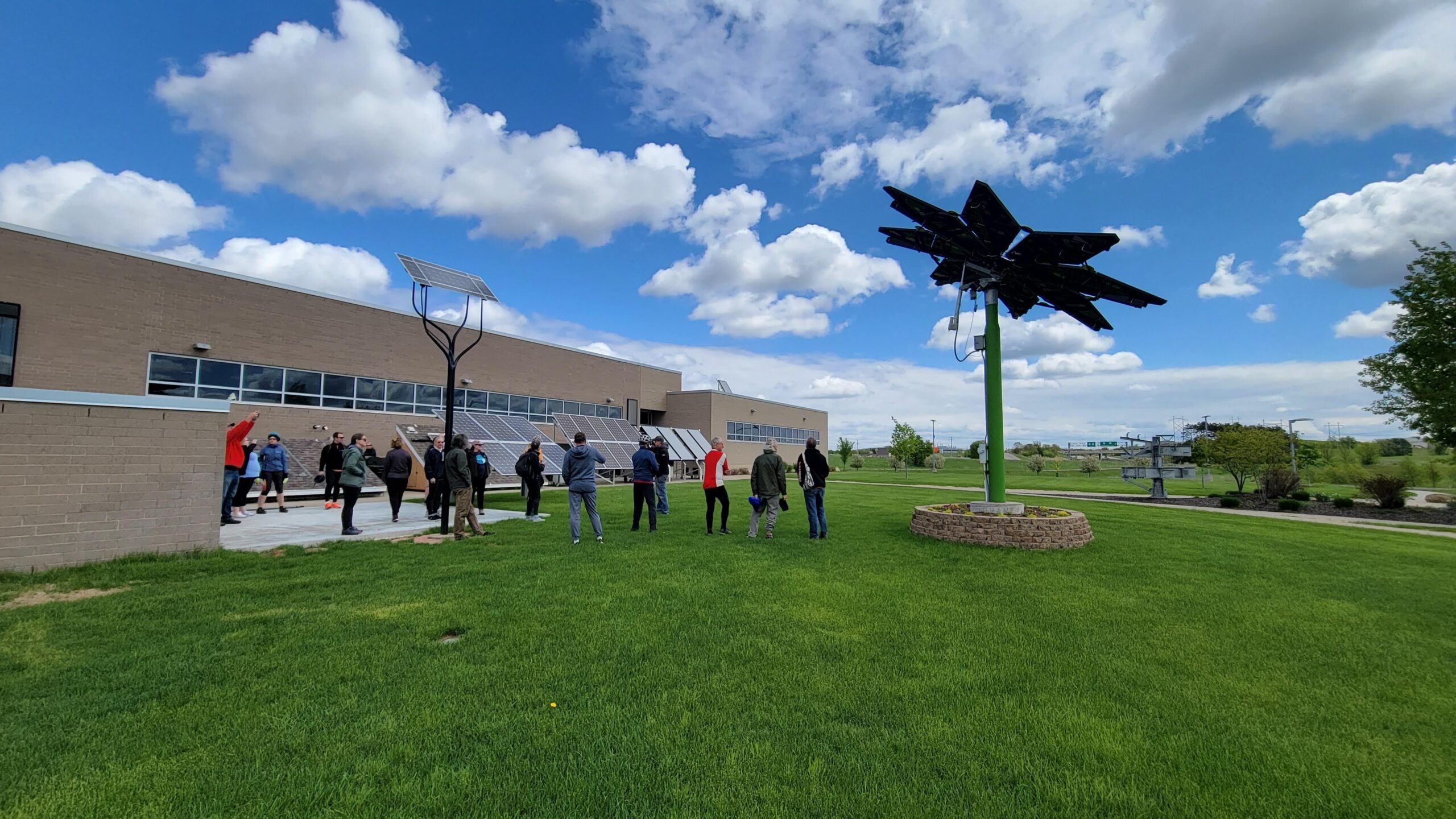
The final stop of the 2022 Ride was the home of long-time friend and former board member of RENEW, Ellen Terwilliger. Over the last decade, Ellen and her husband Steve installed four geothermal wells for heating and 15 kilowatts of solar PV, offsetting around 80% of their energy needs. The property also contains electric-vehicle charging, native prairie grasses, and several rain barrels. The Terwilligers even removed and reinstalled a south-facing rooftop to optimize their solar panels!
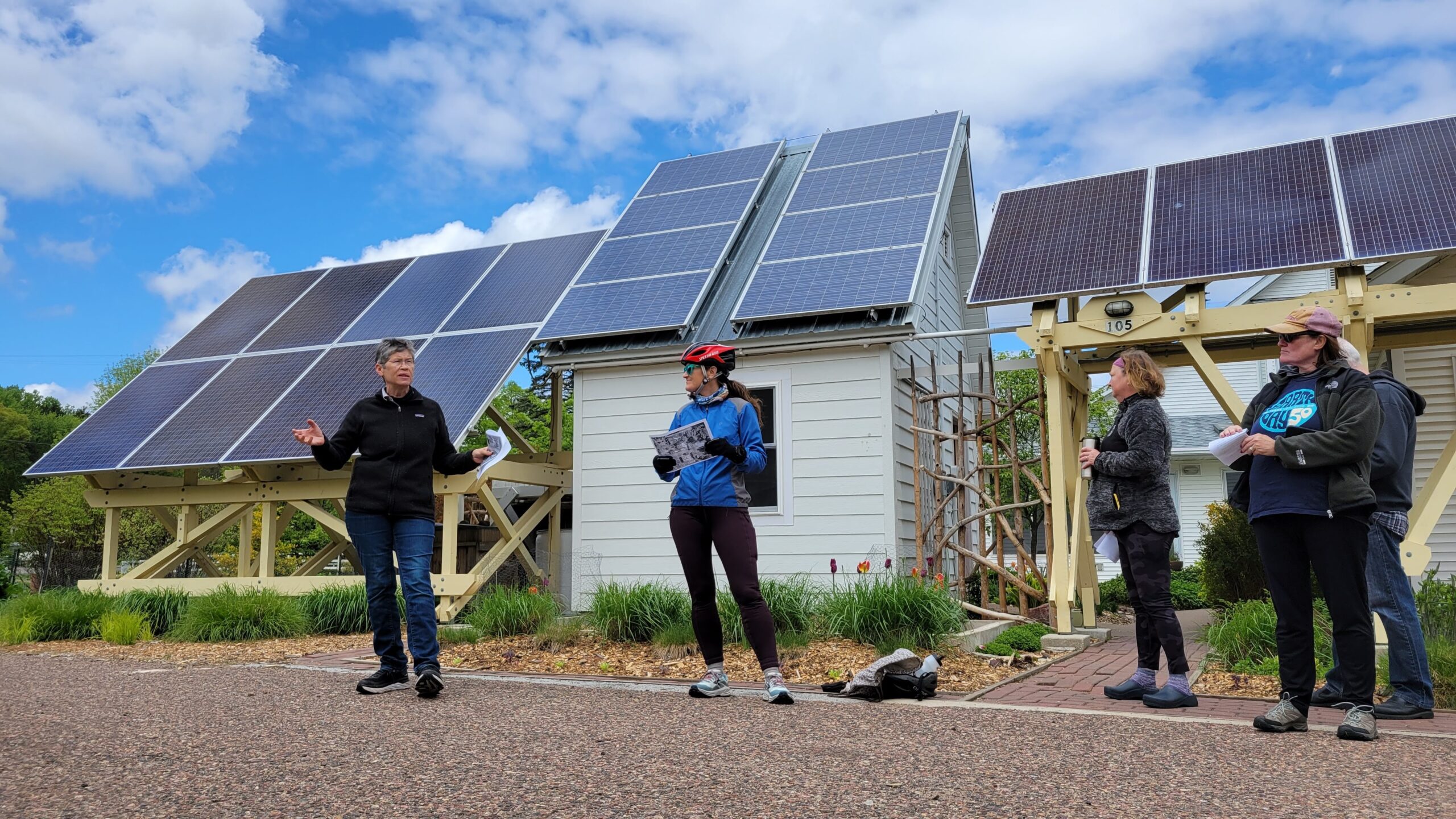
Our 2022 Ride with RENEW ended back at Carson Park with Toppers pizza and a brief address from Jim McDougall discussing his work to install solar on Eau Claire schools. Thanks to Eau Claire, local Ride leader Jeremy Gragert, and all of our riders, donors, and sponsors. Stay tuned for information on our 2023 Ride!

2022 RIDE WITH RENEW SPONSORS
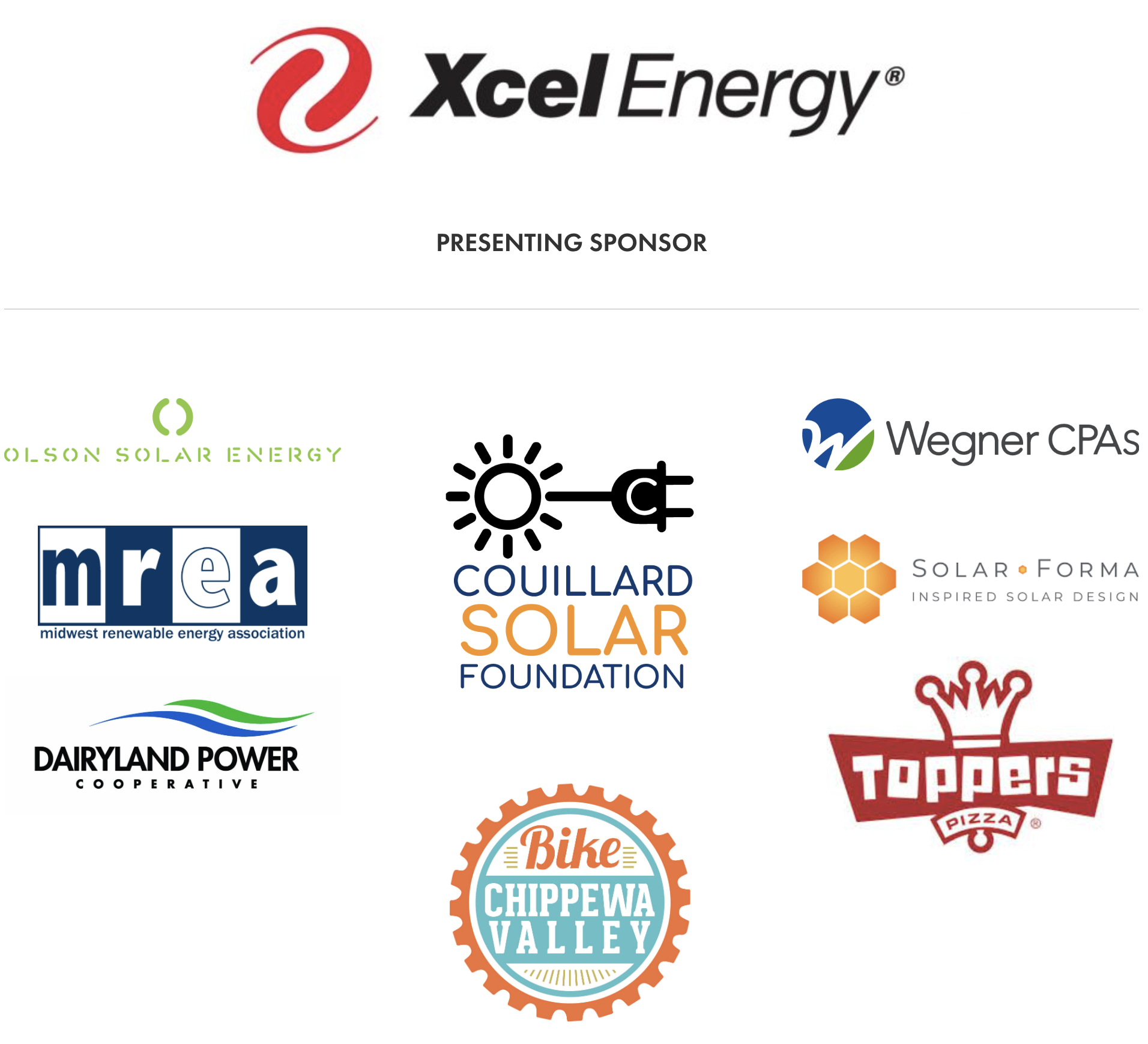

by Francisco Sayu | May 24, 2022 | Community, Electric Vehicles, Electrification, Local Government, Local Initiatives
The Infrastructure Investment and Jobs Act (IIJA), also known as the Bipartisan Infrastructure Law (BIL), was signed last November. It provides $5 billion to replace existing school buses with clean and zero-emission (ZE) school buses. This funding administered by the Environmental Protection Agency (EPA) can benefit school districts in Wisconsin by providing up to 100% of the cost of electric school buses, reducing transportation costs by 60%, and improving air quality throughout Wisconsin communities.
Why Clean School Buses?
School buses collectively travel over three billion miles each year, providing the safest transportation to and from school for more than 25 million American children every day. Exhaust from these buses harms human health, especially for children who have faster breathing rates than adults and whose lungs are not yet fully developed. The Clean School Bus Rebates (CSB Rebates) will fund the replacement of existing diesel and gas-powered buses with cleaner buses that result in better air quality, bus loading areas, and the community in general.
Cleaner buses such as those powered with electricity (electric buses) get the equivalent of 17 miles per gallon (MPG) compared to 6 MPG for diesel buses, providing average fuel and maintenance savings of $170,000 across the lifecycle of the bus. Wisconsin’s electric grid is increasingly powered by renewable energy sources like solar and wind. Transitioning away from diesel and gasoline to local – homegrown energy – will reduce air pollution and strengthen local economies.
2022 Clean School Bus Rebates Overview
The first $500 million of the Clean School Bus Program will be awarded as lottery rebates. The lottery will prioritize applications from low-income, rural, tribal, and/or high-needs school districts. Nearly 200 Wisconsin school districts are on the priority list. School Districts can receive up to $375,000 rebate per school bus (up to 25 buses per district) and $20,000 for EV chargers. The deadline to apply for this year’s rebate program is August 19, 2022.
Important Dates
| Activity |
Date |
| Online application. Submissions here |
May 20, August 19, 2022 |
| EPA reviews applications and begins the selection process |
September 2022 |
| EPA notifies applicants of selection and posts selectees online. Selectees can proceed with purchasing new buses and eligible infrastructure. |
October 2022 |
| Selectees submit Payment Request Forms with purchase orders |
October 2022 – April 2023 |
| Deadline to receive new buses, install EV chargers, replace old buses, and submit final documentation. |
October 2024 |
Eligible Applicants
The following entities are eligible to apply for EPA school bus rebates:
- State and local governmental entities provide bus services, such as public school districts, including charter schools, with an NCES District ID.
- Eligible contractors such as for-profit or nonprofit entities that can sell or finance clean or ZE school buses or related charging infrastructure to school bus owners.
- Nonprofit school transportation associations
- Indian tribes, tribal organizations, or tribally controlled schools are responsible for purchasing school buses or providing school bus service for a Bureau of Indian Affairs (BIA) funded school.
To be eligible for replacement, old school buses must:
- Have a Gross Vehicle Weight Rating (GVWR) of 10,001 lbs. or more
- Be operational at the time of application submission – Able to start, move in all directions, and have all operational parts
- Have provided bus service to a public school district for at least three days/week on average during the 2021/2022 school year at the time of applying, excluding COVID-related school closures
- If selected for replacement, a fleet can either:
- Scrap 2010 or older internal combustion engine buses; or
- Scrap, sell or donate 2011 or newer internal combustion engine buses.
Eligible replacement buses must meet the following criteria:
- Have a battery-electric, CNG, or propane drivetrain
- Be EPA certified vehicle model year 2021 or newer
- Have a Gross Vehicle Weight Rating (GVWR) of 10,001 lbs. or more
- Not be ordered before receiving official notification of selection for EPA funding
- Be purchased, not leased or leased-to-own
- Serve the school district listed on the application for at least five years from delivery.
For questions about eligibility, please contact cleanschoolbus@epa.gov.
Selection Process and Prioritization
The Clean School Bus Program prioritizes high-need school districts. Applicants that serve a prioritized school district will be offered more funding per bus and receive preference in the selection process.
Here is a list of prioritized school districts in Wisconsin.
Schools may also contact RENEW at info@renewwisconsin.org, for more information.










